“A radical is no more than this: he who goes to the roots. Let him who fails to arrive at the bottom of things call himself not a radical; nor let him who fails to help other men obtain security and happiness call himself a man.”- Jose Marti [1] The word radical is one that is thrown out very loosely by both ruling class parties in the US. When the democratic primary was taking place, self-proclaimed democratic socialist Bernie Sanders was hailed as too radical by the democratic establishment. Now that the race is between Trump and Biden, the republicans are pushing the narrative that Biden and those involved in his campaign are radical leftists. In this work we will examine what it means to be a radical and what relation does radicalism have to extremism and socialism. Instead of going straight into what radicalism is, let us examine it through what it is not. The reasons for talking about what it is not should be obvious given the previous example of its usage in categorizing two dramatically different candidates as radical. In the US, radicalism becomes pejoratively synonymous with extremism and socialism; this is part of the general trend of linguistic kidnapping of concepts to be manipulated for the interest of our ruling class (one can throw democracy, freedom, etc. in here too). Racialism and Extremism In the US you will hear the interchangeability of radical Islam and Islamic extremism. As if radicalism and extremism meant the same thing. The reality is that both in practice and by definition this is false. In practice, the radicals in countries that are primarily Muslims are not the ones terrorizing innocent people or planning horrendous attacks. Rather the radicals are the ones that get at the root of the problem in the middle east. They are the ones who realize that America’s destabilization of the area, for economic and political ends, has been what has caused the rise in Islamic fundamentalism. And if they are militant radicals, their goal is to not only fight off imperialism, but also fight off the monster it created in Islamic extremism. Here we see that the radical is the one that would fight not only against the root of the problem, but also the extremism that root created. Thus, any synonymous usage of radicalism and extremism in practice holds to false given the tensions and struggle of one against the other. If we analyze what extremism and radicalism mean by definition, we also notice that one has nothing to do with the other. Extremism implies the positioning of oneself at a pole. This means going to the extreme ends of the given totality, while not inherently threatening to substantially change it. For example, Islamic extremism, regardless of how out of the current totality it presents itself as, still functions within the existing structures of global capitalism. The social atmosphere might be different, but we can see in countries like Saudi Arabia that capitalism is not threatened by their Islamic ideology. On the contrary, it seems to be that this Islamic extremism fits nicely within the global system as the evil boogie man the US uses to fight imperialist wars. This does not mean that fighting terrorism is wrong, on the contrary; rather that the terrorism of Islamic extremism is a profitable ideological tool for the US to expand its material and ideological hegemonic power. We can also look at white nationalist extremism, both historically and in the present. The Nazi’s held extremist and barbaric positions. But they did not present an essential threat to the existing order; rather they were themselves capitalist. The rising trends of white nationalism and far right extremism in the US is another perfect example of this. This trend is one which does not seek to overthrow the essential conditions holding society together, but to go to the extremes of what is possible within that society. This extreme is in our case a reactionary return to a more militant racism rather than the more obscure and gray area one we generally find today. The general trend we find in extremism, whether in the example of Islam or white nationalism, is the inability to be fully radical. This means that they always fall short in their analysis of the problem, and thus, their inability to see the real source of the problem provides the framework for the wrong solution. The Islamic extremist falls short in seeing that their condition is not a result of Americans per say, but of America’s foreign policy; the same one that uses and manipulates Americans to go fight wars in which they either die or return drastically damaged physically, mentally, or both for the sake of the enrichment of the already ridiculously wealthy. The white extremists fall short in realizing that the polarization of wealth and loss of jobs over the last 50 years in the US is not a result of immigrants, blacks, or people of color; rather it is the result of capitalism, specifically in its neoliberal form, which has shipped manufacturing jobs overseas to profit of cheap labor while systematically dismantling the power workers had through their unions and collective bargaining efforts. In both cases what we find is the inability to see the real source of the problem. This is a mistake which leads to the barbarity of the positions taken. These are essentially positions which end up attacking fellow exploited people while letting the common exploiter off the hook. It is a position of weakness because it deviates the blame from the powerful to the powerless. It prefers the easier and mystical opponent, rather than the real and potent one. Radicalism, on the contrary, is measured by its ability to see the real source of the problem. This means that radicalism is not a fixed position. It is not a position in which the same stance is deemed radical in all places at all times. For example, the bourgeois writers of the 17th and 18th century were pretty radical for their time. The John Locke-s and Rousseau-s, although representing different currents of liberalism, both were radicals because they were able to get at the root of their times, and propose alternatives based on a substantial differentiation of their epoch. Locke introduces the right to revolution which is central to the American experiment, and Rousseau the rights of humanity which are central to the French revolution of 1789. Today, both of their positions are either mainstream of have already been surpassed. No one would claim that Locke’s views on property hold their radicalness today. Although one might say that Rousseau’s writings or Locke’s right to revolution still might be radical. The point is that radicalism is based on historical context; sometimes the roots of that historical context remain essentially the same, and thus the radical approach of 300 years ago remains radical. But with the changing of the roots comes the loss of the radicalness of the previous radicalism. Although, given that new roots are not born in a vacuum, but are a result of a specific historical context, it could very well be that an attack to the old roots might still partially reach the new roots, given the new roots retain elements of the past roots. Biden the Radical Before we talk about radicalism and socialism, I think it would be fair to address a point made at the beginning of the work. This point is the Trump campaign’s labeling of Joe Biden as a radical leftist. I don’t think much really needs to be said here, given that anyone who could see two fingers in front of them realizes the stupidity of these allegations. But for the sake of not leaving any arguments unanswered, I feel obliged to comment at least a sentence or two on this. To label Joe Biden as a radical is an insult to stupidity itself. Joe Biden represents the reactionary move towards a pre-Trump America. This move is perhaps the antithesis of radicalism, as not only does it not strive to destroy the roots of the problem which led to the Trump symptom, but it seeks actively to empower those roots even more. In essence, it does not seek to change the conditions which allowed an imbecile like Trump to arise, but rather to retain them without their Trump-effect. It wants to eliminate the cold sweats by returning to the fever. Without realizing that not only does the cold sweat represent essentially a continuation of the fever, but the fever itself is what led to the cold sweats. Radicalism and SocialismHaving now dismissed these allegations of Biden as a radical, let us question the relation of socialism and radicalism. As we already previously mentioned, radicalism consist of being able to not only reach the root of the problem, but actively try to change the situation through an attack directly aimed at the roots. Radicalism is not in any sense a passive exercise. This means that radicalism cannot just seek to interpret the roots of the problem. Radicalism implies praxis. It implies an active struggle to change the conditions of what is, through the awareness and attack of the roots of what is. Radicalism is at the heart of the philosophy of praxis; the type of philosophy that Marx described as not only interpreting the world but actively trying to change it.[2] Thus, what is the relationship of radicalism to socialism? On the topic of radicalism, Marx states that: “To be radical is to grasp things by the root. But for man the root is man himself”[3] The first part we have already established. This root essentially means getting at the foundational essence of the object of examination. It means getting at that which serves as the first cause of all things experienced in a totality. For Marxist, this is the level of how things are made. It is the level of production. Thus, the root is always the economic structure of the time. The second part of the quote serves to affirm that this root is always based on relations between human beings. The root is not in the divine, it is in the way human beings interact with each other in the process of making their means of subsistence. Thus, we see here that radicalism is necessarily based on spatial-temporal contexts. What was considered radical in 14th century Germany is not considered radical in today’s Germany. What is considered radical right now in the US is not considered radical in China. For example, the policies Bernie’s platform was calling for, although not radical anywhere else in the developed world, in a country where even the basic necessities of life are privatized, calling for the removal of the profit motive in education or healthcare is radical. It gets, at least partially, at the root of the extent to which privatization has reached in the US. But the same proposals that Bernie made would not at all have been radical in the UK, where they have a national health system. On the contrary, over there, single payer health care represents a step back. Bernie’s policy to make public colleges and universities tuition free is radical in the US, given the debt higher education forces everyone in; but this policy in Germany would not be radical given they already have higher education basically for free. Thus, does radicalism mean socialism? The answer is clearly no. A radical in one moment might not be a radical in another, even if he does not change any of his views. For example, in the 18th Brumaire of Louis Bonaparte Marx lays out how the first coalition was made by the different classes in France to overthrew the aristocracy and establish the republic; but how in 1848, when the proletariat rises to expand the republic to a democratic (socialist) one, the allies who helped overthrow the aristocracy join to suppress the proletarian uprising.[4] What we see here is the contextual basis of radicalism. When one is in what is essentially a monarchy, the struggle for a bourgeois republic is a radical fight. It seeks to transform the roots of society. But the section of radicals who now have the power in the bourgeois republic no longer stand as radical. Now (1848) they are the conservatory force fighting to maintain the existing order from the threat of a proletarian revolution. This forces us to make two important distinctions in the type of subjects that embody radicalism. The first is the contextual radical. The contextual radical is the person or group that is radical only in their epoch. This is the example of the bourgeoisie. The bourgeois class, in its struggle against the feudal order represented a radical subject. Once the new order established was the one their class benefited from, they no longer stand as a radical force, but rather as a conservatory one. One which seeks not to transcend the roots of the existing structure, but to preserve them. The other form of radicalism I call consistent radicalism. Consistent radicalism is the subject which is constantly attacking the roots of the existing order for the sake of the progression of history. It is the subject which fought with the bourgeois against the aristocracy but did not conservatize when the bourgeois class achieved power. Rather, now they fought with the new revolutionary proletariat in order to radically transform the existing order of capitalism. Thus, as has been already implied, in our epoch to be radical amounts to being a socialist. The contextual radical is the one whose end is the transcendence of capitalism and the establishment of socialism. In this context, the socialist is the contextual radical, in the same way the bourgeois was the contextual radical in the feudal order. The communist on the other hand, stands as the consistent radical. The one’s whose end is not merely in socialism, but who seeks to actively be the agent which stands in the side of the progression of history. Marx speaks of communism in various different ways. The main way is as the society in which the class structure is eliminated, the state has withered away, and the relations of society are guided by the principle of “from each according to his ability, to each according to his needs”.[5] But Marx also speaks of communism in terms of the communist subject. In The German Ideology Marx states that: “Communism is not for us a state of affairs which is to be established, an ideal to which reality will have to adjust itself. We call communism the real movement which abolishes the present state of things.”[6] Thus, communism, the communist subject, here stands as the consistent radical. He who is not concerned with the state of affairs as an end in itself, but who moves towards the progressive abolishment of every existing totality. The communist is the person who in every societal structure that experiences injustice fights for the elimination and transcendence of that injustice; and does so through accessing the roots of that injustice. This does not mean that the communist is the one calling for the overthrow of existing socialist states, but rather the one which gets at the roots of the present problems and fights against them. This means a fight against the pressure of imperialism on socialist states and against the own tendencies of corruption that the hardships of defending a revolution from imperialism might encourage within socialist countries. ConclusionIn conclusion, we have been able to define and distinguish radicalism from extremism and socialism. In doing so we were able to distinguish between two forms of radicalism, contextual radicalism, and consistent radicalism. Finally, thanks to this differentiation of radicalism, we were able to establish the relationship between radicalism, socialism, and communism. Our conclusions where that in our epoch, both forms of radicalism must be socialist. In order to understand and attack the roots of the problem, one must necessarily fight capitalism. But we uncovered that the socialist is the one that remains tied to contextual radicalism. His end is merely the destruction of the present root. Although the communist also strives for the transcendence of capitalism (the present root), his end is not there. The communist stands as a consistent radical; someone who in all moments fights to improve the structures humanity has provided for itself through an approach that focuses on the root of the problem, on the first causes, not on the effects. Citations. [1] Liss, Sheldon. Roots of Revolution: Radical Thought in Cuba. (Nebraska Press, 1987), p. xiii. [2] “The philosophers have only interpreted the world, in various ways; the point, however, is to change it.” Marx, Karl. “Thesis on Feuerbach” The Marx & Engels Reader. (W. W. Norton & Company, 1978/1845), p.143. [3] Marx, Karl. “Contribution to the Critique of Hegel’s Philosophy of Right: Introduction” The Marx & Engels Reader. (W. W. Norton & Company, 1978/1844), p. 60. [4] Marx, Karl. “The 18th Brumaire of Louis Bonaparte” The Communist Manifesto and Other Writings (Barnes & Nobles Classics, 2005/1852), p. 70) [5] Marx, Karl. “Critique of the Gotha Program” The Marx & Engels Reader (W. W. Norton & Company, 1978/1875), p. 531. [6] Marx, Karl. The German Ideology (International Publishers, 1993/1932), p. 56-57.
1 Comment
In the United States, an estimated 16.2 million adults suffer at least one major depressive episode per year.[1] That’s 6.7% of the country who find themselves frequently battling with crippling depression, leaving them under motivated, and trapped in a downward spiral of mental negativity. Even those who don’t have clinically diagnosed depression can relate to these feelings. The tasks of life in our endlessly productive capitalist society can become overwhelming at times, even for the happiest of people. This feeling often leads us to isolate ourselves from the outside world, and fall deeper into the downward spiral of depressive thoughts. There are things that can be done to combat depression of course. Healthy eating, exercise, meditation, consuming positive content, and therapy are all great ways to break out of the depressive thought cycle. However, human beings must also look at the system of production we have created, which is currently leaving so many feeling depressed and hopeless. Under capitalism, many workers find themselves isolated from the things that truly bring them joy. Most people spend eight or more hours a day working dead end jobs. In return for their labour, workers receive wages or salaries which they hope will be enough to support their families. Meanwhile the owners of the companies we work for make enormous sums of money, which they often use to purchase vacation homes, or other luxuries. It then becomes the goal of every employee to achieve the position of company owner, and if not, they must become content with the 9-5 grind. This rat race coerces human beings into becoming cogs in our capitalist system, and as a result, alienates us from the joys of life. The capitalist mode of production creates a culture, which incentivizes the pursuit of hoarding money above all else. Success is measured by your wallet, rather than your overall happiness. For these reasons I believe it is capitalism which is fueling the modern day crises of suicide and depression in America. American society often falls into the mentality of victim blaming. When problems occur, we tend to place the blame on individuals, before we address macro level systemic problems, which may be more difficult to see. Depression is a clear example of this phenomenon. The US is currently facing a suicide epidemic. The year 2018 saw, 48,344 Americans committed suicide, while 1.4 million more attempted to take their own lives.[2] In response, many have jumped to place blame on the individuals who have taken their own lives. The line “Suicide is selfish”, has become a popular among Americans when discussing suicide. It is selfish to take the easy way out, ending your own life, while leaving family and friends behind to mourn your loss. Suicide does not take the pain away, it simply redistributes that pain to loved ones. In a sense, I agree. Nobody should take their own life, and if you’re considering it, you MUST reach out and get help. Taking your own life will leave those who care about you in unimaginable pain. That being said, the line “suicide is selfish” shows how we immediately jump to placing blame on the individual. Instead, we must investigate the societal ills, which no doubt play a factor in the continued rise in cases of suicide and depression. For an example, let’s quickly examine the American military. You would be hard pressed to find any American who argues that US troops are selfish. Regardless of your thoughts on US foreign policy, the troops truly believe they are signing up to sacrifice their own lives for the good of others. These are people with a desire to fight for, and protect those they love. Now consider the fact that 20 US veterans commit suicide every single day.[3] So, are these suicidal service men selfish? Are the troops simply too weak minded to handle the struggles of life? Of course not. No rational human being would argue that military personnel are committing suicide at astounding rates, because they are simply weak minded. Many troops join the military from societal pressures pushing them into service. Whether it be paying for college, promise of a stable income straight out of high school, or the desire to “defend the country”; all three are some of the main reasons why people join the military. High schools all across the country are littered with military recruiters, waiting in the hallways to push impressionable 16 year olds into joining the armed forces. Many kids do join the army, and are eventually deployed overseas, where many see active combat. However, upon returning home, troops are rarely provided the resources they need to cope with the trauma of war. The system which sends our kids to war, does very little to help those same kids cope with the trauma they experience in combat. The system allocates vast amounts of resources for recruitment, and weapons for killing. However, it spends much less on resources to help those brave souls returning from combat. Suicidal veterans are not people who are lazy or weak. They are products of a system which profits of warfare, and leaves those who do the fighting to fend for themselves, upon returning to the country they swore to defend. I bring up military suicides not only to shine a light on such a horrendous issue, but also to portray how mental health and depression are not choices. They’re not things which can be flipped on or off with a switch. They are invisible killers, which infect the mind, and send even the strongest among us spiraling into infinitely negative patterns of thought. I also use the military example to show how things we experience physically, greatly effect what we feel mentally. Although someone may return from war with no outer scars, they may have inner scars, which are much harder to see. In fact, what makes these mental scars so deadly, is that they are often invisible to those who care about us most. While not all of us have seen armed combat, everyone has their struggles. Most anyone can relate to being stuck in a pattern of negative thought. It leaves you feeling overwhelmed, like your spiraling out of control with no way out. Everyone experiences traumas, which we strive to overcome on a daily basis. We silently fight these mental battles, while simultaneously managing to keep up with the demands of everyday life. Most all of us, operating within the capitalist mode of production, experience these feelings. In many of their works, Karl Marx and Frederick Engels analyzed the anxiety and isolation that most workers experience under capitalism. Out of this, they developed their theory of alienation. Marx’s theory of alienation argues that capitalism transforms people’s labour into a power which dominates the activities of their daily lives. Human labour power has created all the material comforts that we enjoy in modern society. Housing, agriculture, education, and entertainment are all produced through human labour. Labour is what extracts raw materials from the earth, and transforms them into commodities for human consumption. This labour is unique to humans, and has allowed us to create massive civilizations, and make incredible technological advancements. However, the capitalist mode of production, while producing a massive amount of commodities, also alienates humans from their own labour. The average person does not view their ability to labour as an incredible gift, which has allowed for the creation of modern civilization. Instead, we are angrily awoken by our alarms each day, before drudging off to work in order to sell our labour to a capitalist, who in return provide us enough money to survive, the “means of subsistence.” Humans are kept from viewing their own labour as the engine which sustains life, and allows for the human species to live in relative comfort. Instead, we simply view our labour as something that must be sold to a capitalist, with the alternative being starvation, or the starvation of one’s family. Human Labour becomes a coercive force, which drains our mental and physical energy on a daily basis. Under the capitalist mode of production, human labour power is not used for the betterment of all society, but is instead, a tool for maximizing the profits of those who own private property. While capitalism allows for commodity production levels to remains high, it turns the working masses into wage slaves, keeping the workers trapped in a metaphorical golden chain; stuck in a society where the majority of people, spend the majority of their time selling labour to a capitalist, creeating a material abundance that the capitalist indulges in greatly. Meanwhile, the worker is thrown the measly scraps of what his labour created. Many modern day economists use Gross Domestic Profit as the primary measurement for economic welfare. The more profit a country makes, the more prosperous that country will be, and as a result, people’s lives will be better. However, this theory does not hold up to scrutiny, and has forced many economists to rethink GDP as a measure of economic success. Since the end of World War 2 the United States has maintained the highest GDP in the world. This includes the past 20 years, where the US has remained the richest country from 2000-2020. Yet, at that same time, suicide rates in the US have increased by 30%.[4] Clearly, the increasing wealth of American society has not correlated to increased happiness. In a world of material abundance, many still feel that life is not worth living. It brings to mind Marx’s quote from his New York Tribune article Population, Crime and Pauperism, where he says: “There must be something rotten in the very core of a social system which increases its wealth without diminishing its misery.”[5] While humans have created vast material abundance, the working masses have remained alienated from their labour, and have seen their wages stagnate for years. Until something is done to create a better life for the working masses of society, issues such as suicide and depression will persist. As with our many military service members battling depression, the working masses of society face material problems, which leads to emotional hopelessness. These issues will not only persist, but increase as the capitalist mode of production marches along. U.S. Workers have seen their wages stagnate for decades.[6] Young Americans entering the job market are seeing very little hope for their future. As automation continues to decrease the number of available manufacturing jobs, the service industry has grown by 5.4%.[7] Young Americans see in their futures, lives confined to working unfulfilling service industry jobs, and receiving measly wages in return. In addition, young Americans who choose to pursue college level education, are now finding themselves trapped under a mountain of student debt. An issue which didn’t exist, at least not at this level, for previous generations. The sense of hopelessness, and increase in suicide, finds its root causes in the capitalist mode of production. The Covid-19 pandemic has no doubt exacerbated the many contradictions of capitalism, which are driving people into depression. While hard data is still hard to come by at the time of writing this article, the CDC has been clear that the number of mental health issues have increased during the pandemic. [8] The economic shutdown has increased economic instability, and quarantine has increased alienation from other humans. This only adds to the hopelessness of those who already see no future for themselves within the current system. So, what is the solution? Those who still believe in the merits of capitalism will tell you that the solution is hoarding. Go to a cheap college, work the entire time, never spend a dime of your money, and one day you will either be able to retire, or you can become a capitalist yourself. Then you may live a life of luxury as one of the few exploiters, rather than remaining among the masses of those who are exploited. However, many young people are beginning to question this model. Some feel that the cost of living is too high to ever allow for them to accrue enough savings for retirement. Others see that becoming a capitalist yourself may decrease your own personal misery, but will then position you as someone who is making money via the exploitation of others who remain miserable. This is why so many young people have begun to question the system itself. Socialism now hovers around 50% favorability among Millennials and Gen Zers.[9] Our generations feel trapped and alienated by the current system. Marxism offers an explanation of why the system feels broken, and socialism gives us a vision for something new. A society where human labour power is used to maximize the freedom and development of all humans, rather than to enrich the select few people who happen to own the factories we toil in. Young people must not be resigned to the system we’ve been born into. Instead we must put our heads down, and put in the hard work it will take to change this system. Shed those feelings of alienation and depression, which have been engrained in you by the modern-day capitalist system. Find renewed motivation in the struggle to create a better world for ourselves, and all those who will be born after us. We must reject the capitalist propaganda which assures us success in life is equivalent to how much wealth one accrues. In the same way religion and sports help people to find joy in fighting for a cause bigger than themselves, we must find joy and purpose in our fight to create a better world, which uses human labour power to maximize the development and happiness of all peoples. Citations
[1] Koskie, Brandi. “Depression: Facts, Statistics, and You.” Healthline. Healthline Media, June 3, 2020. https://www.healthline.com/health/depression/facts-statistics-infographic. [2] “Suicide Statistics.” American Foundation for Suicide Prevention, July 29, 2020. https://afsp.org/suicide-statistics/. [3]“Suicide Among Veterans and Other Americans.” VeteransAffairs.gov, 2014. https://www.mentalhealth.va.gov/docs/2016suicidedatareport.pdf. [4] Winerman, Lea. “By the Numbers: An Alarming Rise in Suicide.” Monitor on Psychology. American Psychological Association, January 2019. https://www.apa.org/monitor/2019/01/numbers. [5] Marx, Karl. “Population, Crime, and Pauperism.” Karl Marx in New-York Tribune 1859. Accessed September 22, 2020. https://www.marxists.org/archive/marx/works/1859/09/16.htm. [6] U.S. Workers have seen the wages necessary to supporting themselves, stagnate for the decades. [7] Lazzari, Zach. “What Are the Causes of Rapid Growth in the Service Industry?” Small Business - Chron.com. Chron.com, January 22, 2019. https://smallbusiness.chron.com/causes-rapid-growth-service-industry-16007.html. [8] Falcon, Russell. “Are Suicides on the Rise during the COVID-19 Pandemic?” KXAN Austin. KXAN Austin, September 3, 2020. https://www.kxan.com/news/coronavirus/are-suicides-on-the-rise-during-the-covid-19-pandemic/. [9] Saad, Lydia. “Socialism as Popular as Capitalism Among Young Adults in U.S.” Gallup.com. Gallup, September 11, 2020. https://news.gallup.com/poll/268766/socialism-popular-capitalism-among-young-adults.aspx. Socialism with American characteristics almost sounds like an oxymoron. After a century of red scares and anti-socialist propaganda we have come to equate everything American with capitalism and the cheap sense of liberty, freedom, and democracy it provides. How can we talk about “American characteristics” and socialism in the same sentence? How can one talk about socialism in a country founded on the genocide of the native and the enslavement of the African? How can one talk about socialism in a country with close to 1000 military bases around the world? How can we talk about socialism in a country in which the last 100 years of its existence has dedicated itself to the imperial exploitation of the global south and middle east, of brown and black folks around the world? Finally, how can we talk about socialism in a country who has dedicated the last century to ensuring all struggles for socialism fail?
Although all of these questions are fair, I will attempt to formulate how it is that we can talk about socialism in the US. The first thing to realize is the distinction between promoting socialism in the US and promoting American Socialism. The first route is fruitless. This route consists of attempting to use socialist icons from abroad in our struggles. This will do nothing but alienate the revolutionary agent in America. Of course, we should read the theory of these folks and see how they correspond to our reality. We should read our Marx, Engels, Lenin, Mao, Lukacs, etc. Their writings are extremely relevant in our world today. The point is, you are not going to get an American worker to join the struggle if your party meeting is filled with portraits of Mao, Che, or Lenin; given that socialism has been propagandized for a century as the antithesis of American values, as something strange and foreign. The usage of these aesthetic symbols will only reinforce that and be tactically detrimental to our cause. The second option, which I call American socialism or socialism with American characteristics, is the route I believe will best guarantee success in our revolutionary recruitment. This route, in order to be traveled, requires a philosophical lens. A philosophical lens analyzes the structures of concepts, questions, and problem formulations in a given totality, and then with a holistic understanding deconstructs the present arena of discourse. This means it re-defines concepts and creates new ones. Philosophy deconstructs and then reconstructs how we speak about what is. To say we must analyze the question of socialism with American characteristics philosophically means that we must deconstruct the structure of the current discourse to then reconstruct it according to the truth we have uncovered. Regarding the question of American socialism, the truth which has been hidden is that America has two different histories. The first is the history of America as the exploitative, imperial, corrupt, racist, elitist country we are all familiar with. The other history of America is the one we must base ourselves on. This other history is the one that has had a tradition of consistent struggle against the actions of its other history. In this sense, America presents itself as an exemplar of a dialectical unity; the history of its unity has been nothing more than the history of the struggle of the two Americas. The one which fights for the oppressed, and the one which is the oppressor. To fight for socialism with American characteristics is to have fidelity to the America that has spent the last 300 years fighting against oppression. It is to have fidelity to the project that envisioned the inalienable rights to life, liberty, and pursuit of happiness for all. It is to be faithful to the tradition of men and women, black and white, who from the very early days of the founding of the American project where aware that the revolution was not finished! That a democratic republic was nothing if we did not expand its benefits to everyone in all spheres of society. This is the tradition of Americans who not only saw something inherently wrong with chattel slavery, but who also realized its wage successor also presented an enslavement to the will of the capitalist. This is the tradition of Americans who fought against any ideologically imperialistic conception of American exceptionalism, who argued that we are all equal in God’s eyes, at a moment when the Indian was still seen as a savage. This tradition of American radicalism has been hidden from us. Our history books talk a lot about the Rockefellers, the Morgan-s, and the Carnegie-s, but not about the Roger Williams, the Thomas Paine-s, the Orestes Brownson-s and the many more who fought for the ideals of the revolution to be materialized in their most inclusive and expansive formulations. To talk about socialism with American characteristics means the embracement of the long and militant tradition of Americans fighting for the empowerment of labor against capital, of people over profit. Tactically there have been countless different approaches. We have had a rich tradition of anarchist syndicalism, republican radicalism, utopian socialism, Christian socialism, and in the 20th century Marxism-Leninism and Maoism. Our history of fighting against injustice is rich and eclectic. This is the history we must base ourselves in. The figures who participated in these movements are the ones we must use in our struggles because they are the ones that Americans can identify with. The embracement of this radical history will break the propagandized stupidity of socialism being anti-American and demonstrate that socialism is as American as apple pie! This is the socialism Midwestern Marx seeks to promote to the American public. It is not a socialism that we created or imported, rather one we seek to dig out of the obscurantism of the American memory and bring back to light. In my last essay, I discussed how capitalist hegemons have used their control over food supply to shape rules of international commerce. I also demonstrated how these policies have led to economic shocks and displacement in developing countries, leading to mass migration in search of economic opportunity. I believe this history is essential to understand the migration that has been a focal point of American and European politics in recent years. In this essay, I will attempt to explore the issue of migration in capitalist development, hoping to provide historical context for our current conceptions and policies around immigration. One of Marx and Engels's favorite examples was that of the Irish. Up until the mid-19th century, Irish society was structured around a system of tenant farming with most of the land owned by English and Anglo-Irish families. This landed gentry introduced the potato to Ireland in the mid-1700s as a subsistence crop for the rural poor; by the 1840s it had become the staple crop of Ireland with much of the population nearly completely dependent on the potato for their diet. Thus, when the potato blight hit in 1845, the Irish were left with little to eat, even though they were still exporting various agricultural commodities to England. During and after the famine, the British aristocracy took the opportunity to push small-landholders off their land.[1] As Marx put it, "If any property it ever was true that it was robbery, it is literally true of the property of the British aristocracy. Robbery of Church property, robbery of commons, fraudulous [sic] transformation accompanied by murder, of feudal and patriarchal property into private property."[2] The result was the death of nearly 1 million Irish and the additional emigration of 1 million more. Thousands of these newly-landless Irish, migrated to English cities seeking any form of economic opportunity.[3] As I pointed out in my last essay, this sudden influx of workers allowed British capitalists to supplement their industrial reserve army with an injection of a subordinate group to perform degraded labor, intensifying competition in the labor market and driving down wages. Stoked by members of the bourgeoisie to divide the working class, anti-Irish sentiment spread rapidly across England, with violent attacks against Irish migrants becoming commonplace. This stance is probably best exemplified by Benjamin Disraeli who wrote in 1836: "[The Irish] hate our order, our civilization, our enterprising industry, our pure religion. This wild, reckless, indolent, uncertain and superstitious race have no sympathy with the English character. Their ideal of human felicity is an alternation of clannish broils and coarse idolatry. Their history describes an unbroken circle of bigotry and blood."[4] These same tropes have often been repeated in different ways and we have seen them reappear in modern American political discourse in recent years. Though billed as a "Land of Immigrants" in the modern liberal lexicon, the actual history of migration in America is much more muddied than this simple platitude indicates. As Aziz Rana put it: "Throughout American history, the tension between capitalism and both democratic self-government and economic independence has largely been resolved by native expropriation and/or racialized economic subordination."[5] From its inception the United States has been an experiment in what Rana and others refer to as "settler colonialism". Despite the proclamations of politicians extolling the American virtues of acceptance and equal opportunity, race and class have structured American societies from the earliest days of the Jamestown colony. During the early colonial period, British officials considered America a depository for their “excess” population, i.e. the poor. To encourage this “rubbish” to migrate to the “New World” the British government created a system of land-grants promising fifty acres to those who made the journey. At first, this helped promote equitable land distribution, but, with the establishment of the “headright system” in 1618, land was allotted based on the number of people whose travel expenses a settler paid for, granting fifty additional acres per head. This incentive, mixed with the large expense of the journey, led to the broad use of indentured servitude, with many of the early settlers coming to America via this arrangement.[6] Importantly, the additional land was given whether the servant survived their indenture or not- leading to extremely exploitative labor conditions. Obviously, this system of allocation led to a vastly unequal distribution of land with much of the best land accruing to the wealthy and politically connected. Eventually, most of the small farmers were squeezed out of the market resulting in a mass amount of landless poor who would become “squatters” in peripheral areas clearing land for subsistence farming. As formal British settlements expanded to these peripheral areas, squatters, who held no formal title to the land they cleared, were again pushed off their land repeating the process. Thus, it is no surprise that several founders, such as Thomas Jefferson, Benjamin Franklin, and John Adams, saw western expansion as a necessary safety valve for excess population. This became a major point of contention between the colonists and the British following the acquisition of French territory in North America after the Seven Years’ War.[7] After signing the Treaty of Paris, the British government issued the Royal Proclamation of 1763, forbidding all settlement in territory west of the Appalachian Mountains and designating this area as an “Indian Reserve”.[8] Not only did this limit western expansion, but many also feared having native civilizations so near British settlements. This is reflected in the Declaration of Independence where Jefferson accused England of having “endeavoured [sic] to bring on the Inhabitants of our Frontiers, the merciless Indian Savages, whose known Rule of Warfare, is an undistinguished Destruction of all Ages, Sexes, and Conditions.”[9] This statement is indicative of how the American project was conceived. From the earliest days of colonization American leaders have sought to manipulate the demographics of the growing nation, shaping who would be allotted full citizenship and who would not. With the addition of vast new western territories, via the Northwest Ordinance and the Louisiana Purchase, and the expansion of American industry, the young nation required new sources of immigrant labor to fuel western expansion and development. Thus, many early American capitalists supported broadly open immigration policies, with 33 million immigrants entering the U.S. between 1820 and 1920. Indeed, during much of the 19th century American industry was dependent on foreign labor with first- and second-generation immigrants constituting 57 percent of manufacturing[10] and 64 percent of mining laborers by the 1880s.[11] But before we wax poetic about America’s tradition of acceptance, we need to remember that this openness has always been qualified. As Suzy Lee argues: “Capitalists may prefer the opening of borders to the extent that immigration policy permits large flows of immigrant labor, but they also prefer an immigration system that does not confer many rights to these entrants.”[12] Essentially, business interests want to ensure a constant supply of disenfranchised workers who would then be forced into subordinated forms of labor. Traditionally, this subordinate labor had been supplied by natives, indentured servants, and African slaves; but, with the abolition of these variations of bonded servitude, a new system would need to be devised to serve the same function. In the 1860s, the federal government created the “United States Emigrant Office” to promote immigration and legalized the use of contract migration which was ultimately very similar to indentured servitude.[13] These policies were designed to attract migrants from Europe and Asia to work in eastern factories or, as was most common for the Chinese, to develop the west.[14] Between the years 1849 and 1880 the population of Chinese immigrants in the U.S. had grown from 650 to over 300,000.[15] Of course, this massive influx of Chinese people was accompanied by laws intended to ensure their status as a subordinated group, such as placing exorbitant taxes on foreign-born miners.[16] Importantly, Chinese immigrants were excluded from the Naturalization Act of 1870 which only extended citizenship rights to formerly enslaved black people, which also allowed many Western states to pass Alien Land Laws prohibiting “aliens ineligible for citizenship” from acquiring land.[17] Further, we see the U.S. system of deportation emerge with the passage of the Paige Act in 1875, which mainly targeted Asian women for deportation. This Nativist backlash to Chinese immigration was more direct in the Chinese Exclusion Act passed in 1882, which placed a ten-year moratorium on all Chinese labor immigration and forbade any state from extending citizenship to Chinese resident aliens. Ten-years later, the Geary Act passed extending Chinese exclusion as well as requiring Chinese people to register and obtain a certificate of residence, without which they would be subject to deportation. The Geary Act was made permanent in 1902 and shaped immigration policy for the early decades of the 20th century.[18] The anti-Chinese sentiment of the time is reflected in Justice Harlan’s much celebrated dissent in the Supreme Court Case, Plessy v. Ferguson, where the justice proclaims: “There is a race so different from our own that we do not permit those belonging to it to become citizens of the United States. Persons belonging to it are, with few exceptions, absolutely excluded from our country. I allude to the Chinese race.”[19] Here we also see a notable shift in government policy towards “closing the gates”, made possible by the scarcity of remaining unsettled western land and growing mechanization in American industry, producing a domestic labor surplus and decreasing demand for immigrant labor. This change in policy was consolidated by the Quota Acts of the 1920s establishing a racialized quota system meant to favor immigration from European nations as well as creating systems of visas and deportation. However, certain industries, such as agriculture in western states, still depended on immigrant labor, leading Congress to exclude immigration from Mexican and other Latin American countries from the Quota Acts. These restrictions on immigration and the severity of enforcement would fluctuate depending on the labor needs of business. As Aziz Rana summarizes: “Most of the 20th century is state and corporate actors keeping the border fluid to ensure pliable labor supply from Mexico, then subjecting them to extreme forms of coercive violence in the U.S. when businesses view their labor as unnecessary.”[20] In the 1950s, the Immigration and Naturalization Service (INS, precursor to ICE), campaigned to shift Mexican immigration flows away from unauthorized migration into formal channels such as the Bracero guest-worker program. This also provides us another example of early deportation systems, with the INS’s Operation Wetback, which involved the mass detainment of undocumented immigrants and immediately placing them in the formal guest-worker program.[21] The Bracero program, along with racial quotas and western-hemisphere exclusion were ended in the 1960s after a mass movement of organized labor and insurgent farmworkers successfully pressured policymakers. This temporarily weakened companies dependent on immigrant labor, but, eventually, this was compensated for by a reversion of immigration flows into undocumented channels, accompanied by the explosion of “undocumented” status for Mexican immigrants.[22] In the decades since the 1960s, Congress has passed various legislation attempting to increase border security and restrict unauthorized immigration to no avail. Border enforcement only captures approximately one-third of migrants attempting to cross and those who are not captured are more likely to remain instead of migrating seasonally. The result is an estimated population of 11 million undocumented immigrants residing in the U.S. effectively serving as a guest-worker program. To understand this shift in immigration policy we must also analyze the structure and effects of the neoliberal global order which has developed in recent decades. Aziz Rana describes it as: “The story about the profound global iniquities hard written into the international order, from which the U.S. gains the most benefit. The U.S. has constructed international legal arrangements that allows its capital to flow anywhere, while controlling immigration.”[23] As I described in my last essay, developed western nations, through control of food supply and global organizations such as the IMF and WTO, forced developing nations to undergo a process of economic restructuring, opening domestic markets to foreign commodities and investment. Thus, neoliberal policies, by destroying domestic industries and displacing mass amounts of people, have ensured an overwhelming surplus population used as a source of cheap labor. This is made possible by the concentration of capital into fewer, larger, transnational companies who can use this cheap labor to outsource parts of the production process to developing nations, leading to the “configuration of enclave economies operating as appendages in global commodity chains.”[24] Currently, between 55 and 66 million people in the southern hemisphere work in these types of enclaves. Corresponding with these neoliberal reforms in developing nations has been the restructuring of industrial relations in developed countries weakening labor-rights and expanding employer control. For companies this has meant greater discretion in wage determination, work organization, and decisions over hiring-and-firing. For the working class this has meant decreased job security, intensification of work, and stagnation of wages. In broader economic terms it has meant the expansion of differentiation and precarious employment in the global division of labor, devaluing the cost of labor and lowering wages. Precarious employment “is a type of employment that is unstable, insecure, and revocable.”[25] Currently, in the United States the percentage of workers employed part-time and under non-standard labor relations were around 17% and 10%, respectively, with over 1.5 billion people globally work in conditions of vulnerability.[26] These forms of employment are normally characterized by low pay, insufficient social benefits, and lack of legal labor protections, with this mass of insecure workers serving a similar function to Marx’s “Industrial Reserve Army”.[27] It is, therefore, no surprise that an increasing number of Americans report feeling insecure in their jobs.[28] And as many immigration scholars have pointed out, immigrants are the ultimate precarious workers, and, with the mass displacement neoliberal policies have wrought in developing nations, millions of workers have begun migrating to developed nations for economic opportunity. Though immigrant workers are technically entitled to the same labor protections as native workers, their ability to exercise these rights is contingent on permission to be present in the country. This is obvious in the case of undocumented immigrants, but even many authorized migrant workers are vulnerable to having their “legal” status changed to “illegal” if their employer sponsorship is revoked, making migrant groups ripe for exploitation.[29] These various aspects of the neoliberal world order have combined to cause the growth of job-insecurity and wage stagnation in developed nations, along with the mass exploitation of migrant workers and workers in developing nations. With this background in mind, how should we on the left respond to the growing nativist sentiment in American political discourse? First, we need to recognize the two dimensions of immigration policy as restrictions on migrant flows and the labor rights of those migrants. Second, we must acknowledge that these two dimensions cannot be fully separated and have a dialectical relationship. As we have seen, certain sectors of American industry (i.e. agriculture and service industry) are still dependent on securing flows of migrant workers, but they are also interested in restricting immigrant access to labor rights. It has therefore been tempting for many American politicians to focus on increasing rights of immigrants, while simultaneously supporting current restrictions on immigration. But, as I discussed above, access to these rights is contingent on permission to reside within the country. Further, as attempts at restricting immigration and expanding border security over recent decades have proven ineffective, even many of the industries dependent on immigrant labor, have become less resistant to migration controls. As it turns out, massive investments in militarized border security, broad deportation apparatuses, and detention facilities, may not do much to prevent or deter undocumented immigration, but they are effective at subjecting migrant workers to extreme forms of violence making them less likely to join in labor organizing. This shows that if we want to improve immigrant rights, we must also seek to deconstruct the national apparatus of immigration control and detention. This would allow migrant workers to exercise their labor rights and provide labor organizations with a mass of potential new members. This is significant because studies have shown immigrant workers are more likely to join unions than native workers and immigrants often work in the most vulnerable industries who cannot easily outsource labor.[30] In summation, I believe leftist policy should focus on promoting awareness of the neoliberal roots of the deteriorating living standards and working conditions experienced by the working-class over recent decades. This includes teaching the history of rising wages, strong job protections, and better working conditions resulting from labor organizing, and the way these benefits have been eroded by an assault on unions by employers and the government. Further, it must include opening borders and organizing workers in vulnerable industries. But most importantly, it will require solidarity with migrant workers, recognizing them as an asset rather than a problem. Citations [1] History.com Editors. Irish Potato Famine. 17 Oct. 2017, www.history.com/topics/immigration/irish-potato-famine. [2] Marx, "The Duchess of Sutherland and Slavery," New York Daily Tribune, February 9, 1853. [3] MOKYR, JOEL, and CORMAC Ó GRADA. “What Do People Die of during Famines: the Great Irish Famine in Comparative Perspective.” European Review of Economic History, vol. 6, no. 3, 2002, pp. 339–363. JSTOR, www.jstor.org/stable/41377928. Accessed 15 Sept. 2020. [4] Benjamin Disraeli, Letter to The Times [Q.d.], www.ricorso.net/rx/library/criticism/guest/Disraeli_B.htm. [5] Denvir, Daniel, and Aziz Rana. “Rethinking Migration with Aziz Rana.” 2019. [6] Isenberg, Nancy. “Taking out the Trash: Waste People in the New World.” Essay. In White Trash, 17–42. Penguin USA, 2017. [7] Isenberg, Nancy. “Andrew Jackson's Cracker Country: The Squatter as Common Man.” Essay. In White Trash, 105–32. Penguin USA, 2017. [8]“Royal Proclamation, 1763.” Accessed September 15, 2020. https://indigenousfoundations.arts.ubc.ca/royal_proclamation_1763/. [9] Thomas Jefferson, et al, July 4, Copy of Declaration of Independence. -07-04, 1776. Manuscript/Mixed Material. https://www.loc.gov/item/mtjbib000159/. [10] Charles Hirschman and Elizabeth Mogford, "Immigration and the American Industrial Revolution From 1880 to 1920," Social Science Research 38, no. 4 (2009): 897-920. [11] Sukkoo Kim, "Immigration, Industrial Revolution and Urban Growth in the United States, 1820-1920: Factor Endowments, Technology, and Geography," National Bureau of Economic Research Working Paper No. 12900 (2007). [12] Lee, Suzy, “The Case for Open Borders.” Accessed September 15, 2020. https://catalyst-journal.com/vol2/no4/the-case-for-open-borders. [13] Ibid. [14] Denvir, Daniel, and Aziz Rana. “Rethinking Migration with Aziz Rana.” 2019. [15] Learning, Lumen. “US History II (OS Collection).” Accessed September 15, 2020. https://courses.lumenlearning.com/suny-ushistory2os2xmaster/chapter/the-impact-of-expansion-on-chinese-immigrants-and-hispanic-citizens/. [16] “Foreign Miner's License · HERB: Resources for Teachers.” Accessed September 15, 2020. https://herb.ashp.cuny.edu/items/show/1714. [17] Rana, Aziz, "Settlers and Immigrants in the Formation of American Law" (2011). Cornell Law Faculty Publications. Paper 1075. http://scholarship.law.cornell.edu/facpub/1075 [18] An act to execute certain treaty stipulations relating to the Chinese, May 6, 1882; Enrolled Acts and Resolutions of Congress, 1789-1996; General Records of the United States Government; Record Group 11; National Archives. [19] Chin, Gabriel J. “The Great Dissenter Had Limits,” October 23, 2018. https://www.baltimoresun.com/news/bs-xpm-1996-05-12-1996133020-story.html. [20] Denvir, Daniel, and Aziz Rana. “Rethinking Migration with Aziz Rana.” 2019. [21] Heer, Jeet. “Operation Wetback Revisited,” April 25, 2016. https://newrepublic.com/article/132988/operation-wetback-revisited. [22] Kitty Calavita, Inside the State: The Bracero Program, Immigration, and the I.N.S. [23] Denvir, Daniel, and Aziz Rana. “Rethinking Migration with Aziz Rana.” 2019. [24]Wise, Raul Delgado, and Humberto Marquez Covarrubias. “Strategic Dimensions of Neoliberal Globalization: The Exporting of Labor Force and Unequal Exchange.” Advances in Applied Sociology 02, no. 02 (2012): 127–34. https://doi.org/10.4236/aasoci.2012.22017. [25] Loren Balhorn Oliver Nachtwey, Loren Balhorn, Oliver Nachtwey, Editors, Nicole Aschoff, Faris Giacaman, Daniel Kinderman, Umair Javed, Loren Balhorn Oliver Nachtwey, and Suzy Lee. “Berlin Is Not (Yet) Weimar.” Accessed September 15, 2020. https://catalyst-journal.com/vol2/no4/berlin-is-not-yet-weimar. [26] Kalleberg, Arne. “The Social Contract in an Era of Precarious Work,” 2012. https://inequality.stanford.edu/sites/default/files/media/_media/pdf/pathways/fall_2012/Pathways_Fall_2012%20_Kalleberg.pdf. [27] Ibid [28] Ibid [29] Lee, Suzy, “The Case for Open Borders.” Accessed September 15, 2020. https://catalyst-journal.com/vol2/no4/the-case-for-open-borders. [30] “Farm Labor.” Accessed September 15, 2020. https://www.ers.usda.gov/topics/farm-economy/farm-labor/. Every year 9 million people starve to death globally.[1] Simultaneously, in the United States alone, 80 billion lbs. of food are thrown away each year. [2] These statistics are what originally drove me to become a Socialist. Growing up in American you are told all your life that socialism is a fool’s ideology, which has resulted in the deaths of hundreds of millions. However, we never question how many deaths are laid at the feet of capitalism. Global capitalism has created a situation in which more than enough food is produced to feed the entire world, yet that food is thrown in a landfill, while at the same time human beings wither away and starve from lack of nutrition. Clearly the problem is not lack of production, but a failure to distribute what is produced. These simple, statistics about food waste and starvation are proof that our economic system is irrational. There is no rationality to a system which produces mountains of food, while allowing millions to starve to death, and this irrationality is inherent to the capitalist system. Throughout history, imperialist forces have turned colonized nations into monocropic countries, and have then extracted the food those nation’s produce for dirt cheap. This is the phenomenon which has led much of the Global South to suffer from starvation, while countries’ in the Global North face a crises of Obesity. For an in depth analysis of how this happened I would urge you to read the work of my colleague Alex Zambito, who published an article titled “Imperialism and Food Supply.” The article is an amazing read, and helps shine a light on the reason such inequality exists between the Global North and South. In this article however, I have a different goal than Alex. Rather than explain the history behind food imperialism, I am simply attempting to make the Morale argument for socialism, based on capitalism’s inability to end mass starvation. It is a moral imperative that we set aside the profit motive of capitalism, and use the excess of food to feed our starving friends around the globe. The shortest definition of politics is “who gets what.” Who is getting the resources which are created through human labour power? Under capitalism resources are distributed to those who can pay for them. Goods and services are not produced to meet human needs, but rather to make a profit. This means even though Capitalism is extremely productive, it fails to distribute even basic necessities such as food and shelter to those who can’t afford it. The Capitalist ideologues then shame those who find themselves homeless or starving. “Pull yourself up by your bootstraps” they say to the Yemeni Children lying dead in the dirt from lack of nutrition. [3] Experts on hunger have come to a clear consensus that enough food is produced to feed everyone on the planet.[4] Most starvation happens in the Global South, and is blamed on lack of economic development. While my aforementioned colleague Alex explained in his piece exactly how the Global South was driven to starvation, my analysis will be far simpler. I’ll ask the question any empathetic person may ask themselves after reading the statistics of food waste and starvation. Why does the US choose not to ship their excess food to the areas in need? The answer to this question is profit. Those who own the means of production and material wealth in society make decisions which will continue to maximize their profit. Shipping excess food into Yemen, where many die of starvation every day, does not make anyone a profit. Despite the fact that human suffering would be eliminated in mass, capitalists cannot bring themselves to take actions which don’t bring in revenue for their companies. This has led us to the absurd condition, where 80 billion tons of food is thrown away. It happens simply because distributing the excess food would not make anyone a profit. So why don’t we force the capitalists to feed the poor? Why doesn’t the United States Government pass a law declaring that all excess food be gathered and shipped to the Global South? Well the answer, in reality, is that the richest in society own the Government, and would never allow such a law to be passed. But how about ideologically? Why is it that every empathetic citizen in the United States is not demanding something be done about food waste and world hunger? Well, because that would be socialism. Scary and evil socialism which infringes on the freedom of individuals. A law declaring that private firms be forced into sharing a portion of the commodities their workers produce would spark massive outrage from Capitalist ideologues. There is no doubt that wealthy capitalists, and the US media alike would declare such a law as an infringement on the freedom of private firms to do what they like, with the commodities they produce. You may be asking yourself, how is this an infringement on freedom? If the food is going to be thrown away anyways, and people are starving to death from lack of food, then what’s the harm of giving the food to those who starve? Is it not an infringement on the freedom of those who starve, to allow them to die a long and painful death, while others sit upon a mountain of uneaten food? These are the questions my 19 year old self began to ask after finishing a paper about world hunger for my Global Politics class. The answer I got from my peers was “forcing companies to give away food would be socialism.” That answer was not enough for me anymore. The idea began to form in my head that socialism was nothing more than a scare word to stop society from feeding the hungry. The more research I did, the more I found that the majority of society’s ills stem from capitalism. In high school I volunteered for an Organization called “Feed my Starving Children” who package food, and send it to the Global South. My family, and wrestling teammates, worked for the organization each year. Yet no matter how much food we bagged and shipped, people continued to starve. At one point, I figured that I needed to join the Peace Corps and travel to the Global South myself. I followed the Peace Core on all social media, and witnessed them sending a constant stream of smiling American youth to the Global South. Even still, I would go to class and read about those who continued to starve. It became apparent to me that charity is simply a Band-Aid on the gaping wounds of capitalism. No matter how much food you bring to the Global South, people will still starve, and wealthy countries will still throw away mountains of food. Despite being indoctrinated into fearing socialism all my life, I slowly started to become a socialist. It became clear that all society’s ills, which my family and I had attempted to mend through charity, were simply baked into the system. Capitalism has never fed the hungry, housed the homeless, or seen peace between nations. The evil scary socialism I had been warned about, would take both power and resources from the capitalists who only care for their own profit. It would remove the anarchic market system which allows for absurd contradictions such as, throwing away tons of food while people starve, and creating more empty houses than homeless people.[5] Capitalism is simply irrational, and it has always been irrational. It produces enough for everyone, and distributes it to only a few. Not just luxury commodities, but human necessities like food, water, and shelter. My argument, in a nutshell, is that socialism is simply common sense. It takes an incredible amount of propaganda to convince people that feeding the hungry is morally wrong, or that it infringes on individual freedoms. It is high time we question whether those in power have been lying to us about socialism all along, in an effort to continually hoard wealth and power. It’s time we move on from this capitalist system which incentivizes only selfishness and greed. We must create a system which produces commodities not for profit, but for the good of all humanity. This is how we feed the hungry, house the homeless, and end the wars. Capitalism is the source of these societal ills, and socialism is the answer. Citations.
[1] Mai, H.J. “U.N. Warns Number Of People Starving To Death Could Double Amid Pandemic.” NPR. NPR, May 5, 2020. https://www.npr.org/sections/coronavirus-live-updates/2020/05/05/850470436/u-n-warns-number-of-people-starving-to-death-could-double-amid-pandemic. [2] “Food Waste in America in 2020: Statistics & Facts: RTS.” Recycle Track Systems. Accessed September 11, 2020. https://rts.com/resources/guides/food-waste-america/. [3] Duffin, Published by Erin, and Nov 13. “Global Hunger Index 2019: Countries Most Affected by Hunger.” Statista, November 13, 2019. https://www.statista.com/statistics/269924/countries-most-affected-by-hunger-in-the-world-according-to-world-hunger-index/. [4] “Can We Feed the World and Ensure No One Goes Hungry? | | UN News.” United Nations. United Nations. Accessed September 11, 2020. https://news.un.org/en/story/2019/10/1048452. [5] Brinklow, Adam. “San Francisco Has Nearly Five Empty Homes per Homeless Resident.” Curbed SF. Curbed SF, December 3, 2019. https://sf.curbed.com/2019/12/3/20993251/san-francisco-bay-area-vacant-homes-per-homeless-count. Therefore political power must, for the working classes, come straight out of the Industrial The interest that so many have expressed in forming a workers/labor party shows that many are disgusted by our current political system. This disgust is shared by many throughout our state (Iowa) and country but has manifested itself in different directions, not entirely in our favor. There is no doubt in my mind that a workers/labor party is essential to securing political victories for the working class; however, I think that a clear and sober look at the current class dynamics within our state and country is necessary to establish our next steps.
The struggle between capital and labor waged throughout the twentieth century had battlefields all throughout the United States. Due to industrial pressure inflicted by the working class, many workers were able to secure a decent standard of living across the country from the 1940s until the 1970s-1980s. But the position of workers, their communities, their politics, and their unions was hollowed out by the neoliberal politics that was to arise out of the Reagan administration and remained unchecked by the Democratic opposition. In fact, it was largely adapted by the Democratic Party itself. From the 1980s until today, the Democratic Party has seen its support amongst workers eroding. At one point, the Party was a vehicle for workers to gain political concessions, but since the 80s, and even more specifically in 2016, workers left the Party in favor of the politics of Trump. The collective workers struggle was struck down by Reagan and it is a shame that workers turned around and voted for Trump, who on the one hand, gave lip service to American workers and on the other hand has implemented many Reagan-esque policies. A sign of how far the struggle has fallen. In 2016 and in 2020 the opposition to neoliberalism has been entirely based around the politics of Bernie Sanders. He seemed to articulate an alternative to politics as usual and his appeal in 2016 reached into areas that the Democrats had been failing to reach. As impressive as Bernie’s two campaigns were, the movement for socialism in the United States was never going to be successful upon the back of an individual alone. There are a lot of things that we need to learn from Bernie and the movement that surrounded him. And it is our imperative to learn from the successes and failures in order to continue the struggle for socialism in the United States. As socialists, we believe that there are twin pillars of power within society, the industrial and the political. Bernie’s campaign showed how disconnected the two struggles were and yet, Bernie was unable to marry the two completely. Bernie was able to bring many young and apolitical people into his movement but his movement remained largely a political one. Historically, socialists moved from the industrial battlefield to the political battlefield, whereas Bernie’s movement attempted to do the opposite. It is our imperative then, if we wish to continue any sort of left movement within the United States, to focus on the industrial wing of our movement; a wing that has been neglected by the left over the past decades. The industrial wing is our base and our electoral success or failure will be a reflection of our progress on the industrial battlefield. As the conquest of the political state is the echo of the industrial struggle, the industrial struggle is best represented by the state of our labor movement. After four decades of neoliberal assault upon the labor movement, the movement itself remains extremely weak. Our unions have been placed on their back foot and have had to accept trade deals and legislation that have hindered their ability to organize. The deindustrialization that has ruined many communities throughout the country played no small part. But even with that concerted effort on behalf of capital, we see in the midst of the crisis today, that it is labor, not capital, that keeps the world running. It then becomes the imperative of socialists to focus on the point of production, the workplace, in order to build the base for future electoral movements. It was James Connolly who stated, “the socialism which is not an outgrowth and expression of that economic struggle is not worth a moment’s serious consideration.” If we should take anything from Bernie, it should be his insistence upon rebuilding a fractured labor movement in the United States. We mustn’t put the cart before the horse. As Eugene Debs noted, “We can have no effective Labor Party without the backing and support of the labor unions.” That isn’t to say that the political struggle is currently irrelevant, but rather that we need to rebuild the base of our political struggle. To paraphrase Connolly, when labor finds itself in the position to control industry by economic pressure, it finds that the state must bend to our will – or break. 9/11/2020 Neo-Colonialism in Venezuela and its Coverage in Western Media. By: Edward Liger SmithRead NowAny politically active individual in the United States advocating for Socialism has likely heard the argument “what about Venezuela?.” In 1998, Venezuela elected President Hugo Chavez of the United Socialist Party of Venezuela, and are currently led by President Nicolàs Maduro of the same party. Beginning around 2012 Venezuela began experiencing economic slowdowns which have worsened since that time. The country is currently experiencing what Economists refer to as stagflation, meaning high inflation combined with high unemployment. Reports now show the Venezuelan citizenry are experiencing food and medical shortages creating a humanitarian crisis in the country. In 2018, the Organization of American States (OAS) concluded that the Venezuelan elections were fraudulent, and had been illegally influenced by Maduro in order to maintain his position as President. These elections were used as justification for The United States, Britain, German, France, and many other Western powers to support a 2019 coup attempting to install Venezuelan opposition leader Juan Guaido as President. The coup failed, however, and Maduro remains in power. Despite the failed attempt, the aforementioned Western countries, as well as some right wing Latin American Governments, such as Jair Bolsonaro’s Brazil, now recognize Guaido as the rightful President of Venezuela. The vast majority of Western Media have concluded that Maduro and his socialist policies are to blame for Venezuela’s Political and Economic turmoil. Corporately owned Western outlets, such as the Washington Post, blame nationalization of industry and irresponsible government spending for Venezuela’s economic collapse. This narrative often fails to include any information about the economic sanctions imposed on Venezuela or their effect on the Venezuelan citizenry. These sanctions, which began under Bush in 2005, have only increased under both the Obama and Trump administrations; the Congressional Research Service reports 144 different sanctions imposed by the United States on Venezuela(FAS). The timing of these sanctions seems to coincide with the Venezuelan economic slowdowns that have led to the current humanitarian crisis. To understand what is happening in Venezuela it is essential to consider the impacts of both the US sanctions as well as mistakes made by the Socialist Party. This essay will attempt to answer the seemingly simple question “What about Venezuela?”. Looking at all factors involved including sanctions, CIA intervention, and Venezuelan Government policies. This essay will also analyze the hegemonic Western media narrative about Venezuela and the financial motivations which exist for the media to encourage regime change in the country. Since 1912, Venezuela has been an economy based on exporting oil. To this day, the entire economy and standard of living for people in Venezuela is dependent on how the oil industry is being managed. The vast amounts of oil underneath the country was a metaphorical gold mine for Royal Dutch Shell, and Rockefeller Standard Oil in the early 1900’s. In 1936, Venezuela began to take control of their oil industry while cutting out foreign companies, attempting to “Sow the Oil”. This plan aimed to take oil revenue and use it to invest in other industries and social programs, diversifying and modernizing the Venezuelan Economy. By 1976 Carlos Andres Perez fully nationalized Venezuelan oil with a goal of redistributing more of the wealth it created to workers. Although the Perez administration would take a turn towards neoliberal policy, allowing multi-national corporations to share in Venezuelan oil riches. This lead to a poverty rate of over 50% and two attempted coups by Hugo Chavez. Perez would eventually be convicted by the Venezuelan Supreme court of embezzlement. The Venezuelan economy has always been somewhat of a roller coaster. When global oil prices are up, so is the Venezuelan economy and vice versa. In 1998, Hugo Chavez was elected in Venezuela and began visiting every country, especially those membered with The Organization of the Petroleum Exporting Countries (OPEC), urging them to set a quota on oil production. This quota was meant to keep production of oil low enough so that prices remained higher and more stable. Chavez’s efforts were successful as oil prices rose to their highest levels since 1985. Chavez also “renationalized” the Venezuelan oil company PDVSA which he argued was acting independently of the state, becoming its own entity which prioritized their own profit over the betterment of Venezuela. Since 1912 the Venezuelan economy has been tied to oil and has found itself in a constant struggle to keep global oil prices high, to diversify their economy, and to remove possibilities of foreign companies profiting from their oil reserves. This history is vitally important for understanding the current economic and political situation in the country. The main flaw in the Venezuelan Economy is that it is not adequately diversified. Since the early 1900’s, the country has been completely dependent on oil which has led to multiple negative side effects. Economists have prescribed Venezuela with Dutch Disease, meaning the country’s oil industry has become disproportionately large, and other industries have suffered as a result. This Dutch Disease phenomenon was first seen in Holland in the 1970s when the country discovered oil. Essentially, as the oil market of a company becomes strong, that country’s currency is strengthened globally as a result of the new revenue. This makes it more expensive for other industries to export their goods, as the costs for goods has now increased due to the spike in oil revenue. A journal entitled Sowing the Oil states, “The discovery of oil and the conversion to a petro-economy caused an influx of foreign exchange in the country, making food imports cheaper than domestic production and a resultant massive rural exodus.” (Clark). A main goal of Venezuelan Government since 1999 has been to combat Dutch Disease by creating food sovereignty in the country. The plan has been to use the money brought in through oil exports to create state run farms allowing more domestic food production. Overall, these policies had success lowering poverty from 49% to 26% between 2000 and 2010. Along with this, malnutrition became almost nonexistent in Venezuela, raising average calorie consumption from 91% of recommended levels to 101.6%. (Weisbrot). Additional successes include the Mission Robinson program which taught 1.5 new Venezuelans to read and write, prompting UNESCO to declare in 2005 that Venezuela had abolished illiteracy. Infant mortality in Venezuela dropped by 49% from 1999 to 2010. 700,000 new homes have been built to combat homelessness. (Lamrani). In order to implement these policies, Chavez, and Maduro after him, needed to maintain control of the Venezuelan oil company, PDVSA. Prior to his election, Chavez felt that PDVSA was functioning as a State within the State. In order to enact the policies of food sovereignty, Chavez fired many directors of the PDVSA and strengthened state control over the oil company. This allowed for the Government to use oil profits as they see fit. This meant more focus on endogenous development, meaning the country could use the revenue from imports to increase equity and human development. The goals of the Venezuelan government have always been at odds with those of the United States. Venezuela is run by a Socialist party which has nationalized their oil using the revenues to increase social programs and domestic food growth. The United States on the other hand, promotes capitalism and the autonomy for private entities to make decisions that are based on what is in their financial best interest. This philosophical clash has created a situation where the more the Venezuelan state gains control over their oil, the less profit there is to be made for private fossil fuel companies. Citgo is the only US Company which remains in Venezuela, and it is forced to make large payments to the Venezuelan State in order to remain. This could be the motivation behind the strong sanctions which the US has imposed on Venezuela since Chavez was elected. As Venezuelan oil sovereignty has increased so have the sanctions from the United States. The conflict between the two countries peaked in 2018 when Juan Guaido and the US backed opposition party attempted a coup on the Maduro. The United States has now escalated their position from imposing economic sanctions to outright refusing to recognize Maduro as the sitting President. The United States Government has become closely linked to private oil companies within the country. This has led the United States to impose economic warfare on Venezuela in the form of sanctions, mostly on Venezuelan oil. In addition, the US has maximized global oil production in countries such as Saudi Arabia, which keeps private profits high and the price per barrel of oil low. This economic warfare has become more visible during the Trump administration, whose members speak openly about meeting with oil executives to kneecap the Venezuelan economy. The sole remaining US Company in Venezuela is Citgo, which maintains refineries in both the US and Venezuela. The Citgo refineries in Venezuela are owned by the PDVSA, meaning most of their profits go to the Venezuelan Government. In 2019 Trump and former National Security Advisor, John Bolton, attempted to halt this cash flow. The Washington Post reports “The administration’s new sanctions order the company to divert its payments for Venezuelan crude into a US bank account that Maduro would be unable to access.” (Mufson). Bolton also told the post he had a “very productive meeting with three Citgo executives.” This meeting between the US government and the oil executives is a perfect microcosm of what US economic policy has been in Venezuela. The US state and oil executives have become so closely tied that the National Security Advisor openly admits urging Citgo to divert money created by Venezuelan labor into a US bank account. While some might define this action as theft, the Post article written by Steven Mufson is clearly supportive of this new sanction. The article calls Citgo “the last remaining crown jewel of Venezuela’s failing economy.” The article later states, “only Citgo has provided cash that Maduro has used to ensure the loyalty of his supporters.” Referring to Venezuelan social programs as “payments to ensure loyalty”. Furthering the idea that Maduro is a corrupt dictator only concerned with furthering his own power. The article goes on to praise Citgo who saw economic gains after sanctions allowed them to simply take the oil revenue for themselves rather than paying it to the State where it was produced. This reporting from one of the largest and most respected media outlets in the US has a clear bias towards private business. The article fails to explore how these new sanctions affect the Venezuelan people. Simultaneously, the author accuses the Venezuelan Government of corruption while not questioning whether it is ethical for a US secretary of foreign affairs to meet with top oil executives at a private fossil fuel company. This narrative is perpetrated by almost every news source in the country and provides a hegemonic narrative with a one sided view about the crisis in Venezuela that completely absolves the US of any blame. The justification given for the sanctions and attempted coup in Venezuela in the narrative popular with the US media is that Maduro is an authoritarian dictator who needs be removed. The United States rejected Venezuela’s electoral process in 2018, arguing that the election was undemocratic and had been altered by Maduro. Maduro received 68% of the vote in 2018, US media reported low voter turnout and irregularities in the voting schedule as evidence that the elections were fraudulent. Many academics have questioned the claims of illegitimate elections as Venezuela is known for their clean and fair elections. A report on the 2018 Venezuelan elections and subsequent media coverage said “The supposed dictatorial Venezuelan Government pleaded with the UN to send as many observers as possible. Elections in Venezuela are already probably the most heavily monitored around the world. Successive reports from hostile sources such as the European Union and Carter Center have strongly praised the election system” (McLeod). The organization CEELA comprised of Latin American election officials, many from countries hostile to Venezuela, praised the 2018 elections for their scrutiny. CEELA President Nicanor Moscoso said “We can emphasize that these elections must be recognized because they are the result of the will of the Venezuelan people.” Despite these reports, the US and many other countries refuse to recognize Maduro as President. Another reason given for the need to overthrow Maduro is that he has cracked down on any dissent in Venezuela, even torturing those who dare to oppose the Venezuelan Government. The organization “Human Rights Watch” has been one of the main perpetrators of this narrative. In 2017 they published a report entitled Crackdown on Dissent. Brutality, Torture, and Political Persecution in Venezuela. In this article, Human Rights Watch reports between April and September of 2018. “88 cases involving at least 314 people who were victims of serious human rights violations” (Vivanco). It is unclear how Human Rights Watch received this information. However, what is known is the organization wants increased international pressure on Venezuela. The article concludes with a ‘recommendation’ paragraph which reads “To ensure accountability for and deter the repetition of human rights abuses documented in this report, it is critically important to redouble international pressure on the Venezuelan Government.” Human Rights Watch is heavily funded by billionaire Capitalist George Soros who in 2010 pledged to give $100 million to the organization over 10 years (Pilkington). Along with this pledge, in 2020 the group was caught taking a $470,000 donation from Saudi Arabian real estate magnate Mohamed Bin Issa Al Jaber under the stipulation that the money could not be used to support LGBTQ advocacy (Emmons). In addition, Human Rights Watch has also come under fire for a revolving door on their board for US government members including NATO secretary, Javier Solana, Colombian ambassador, Myles Frechette, and CIA analyst, Miguel Diaz (Democracy Now). This revolving door allows Human Rights Watch to act as a mouthpiece for the US Government and the interests of their donors. The organization has been one of the strongest advocates for regime change in Venezuela. Their claims about Maduro and calls for regime change need to be looked at with scrutiny and conflicts of interests need to be addressed. Another one of the most powerful voices for regime change in Venezuela has come from the Atlantic Council, a multimillion dollar think tank in Washington DC. In 2017 the Atlantic Council published a research report on their Economic Sanctions Initiative, which in their own words is meant to “build a platform for dialogue between the public and the private sector to investigate how to improve the design and implementation of economic sanctions. The initiative has a focus that goes beyond a purely national security perspective on sanctions to bridge the gap with the broader business perspective” (Forrer). This publicly available statement from the Atlantic Council helps to reveal what exactly is motivating these economic sanctions. The group openly admits that they are attempting to create a partnership between the public and private sectors. In other words, allowing private capital to use the state as a tool to create better business opportunities abroad. The Atlantic Council’s board of directors is a who’s who of powerful U.S. businessmen, including Council Chairman, John F.W. Rogers, who also resides as an executive officer of Goldman Sachs. (Goldman Sachs). Chairman of the Atlantic Council International advisory board is former US treasury secretary, David McCormick, who is also the CEO of Bridgewater Associates, the self-proclaimed “world’s largest hedge fund” (Bridgewater). It’s far from a conspiracy theory to say that private business interests influence sanctions imposed by the United State Government. The Atlantic Council has close ties to both the state and private business, and as can be seen with David McCormick, often acts as a revolving door between the two groups. This relationship has allowed The Atlantic Council to have great influence over US economic policy dating all the way back to 2006 when their report on the global oil markets targeted Venezuela as a “major energy producer” who had “re-nationalized their oil assets”. The Atlantic Council goes on to say, “it was seen as an increasing challenge to U.S. dominance in global energy and political affairs” (Atlantic Council 2006). Rarely mentioned in the Atlantic Council briefings are concerns about human rights or fear of authoritarian power grabs by the Venezuelan Government. Those encouraging and crafting the sanctions seem to be primarily concerned with global oil markets rather than providing humanitarian aid. Despite the United States public “commitment of humanitarian support for Venezuelan people” (US Treasury). A report done in 2019 by economist, Jeffery Sachs, linked 40,000 Venezuelan deaths as a direct result of US sanctions since 2017. (Sachs). Sachs makes the argument that the economic collapse in Venezuela is being purposefully orchestrated by the U.S. Government. The Trump administration has had the goal of regime change in Venezuela since 2017, when Trump initiated the idea to advisors of a full on military intervention in Venezuela, and even saying publicly in 2017 “we have many options for Venezuela, and by the way I’m not going to rule out a military option” (Merica). After being met with pushback from those within his administration as well as many Latin American allies, Trump instead has opted to metaphorically strangle the Venezuelan economy through sanctions. The goal being to create more instability in the region, making it easier to instill a puppet President in Gauido who will hand the PDVSA over to U.S. Business interests. Sachs argues that in 2017, a new batch of U.S. sanctions prevented the PDVSA from accessing global oil markets, and prevented the company from restructuring its loans. The report finds that these sanctions are what triggered the hyperinflation Venezuela has experienced since 2017. After these sanctions were implemented oil revenue plummeted. As was mentioned earlier, the Venezuelan economy hinges entirely on the success of its oil revenue. As a result of decreased income, funding for medicine, food, and social welfare programs plummeted along with oil revenue. We also know that since 2017, the U.S. has directly intercepted money from Citgo which is supposed to be paid to the Venezuelan Government. John Bolton boasted about this fact when he was still with the Trump administration in 2019. (Mufson). Jeffery Sachs is clear that the numbers in his report are rough estimates based off what has been studied in Venezuelan universities. While nobody can know the exact death toll, Sachs says that we need to look at the clear fact that U.S. policy has created and exacerbated the Venezuelan economic crisis in order to destabilize the region and create regime change. May 2020 saw the first coup attempt in Latin America in years. Two former Green Beret’s attempted to enter Venezuela through Macuto Port. It was later discovered that their plan was to travel to Caracas and simply take out Nicolas Maduro. The attempted coup was organized by the company Silvercorp, a company known for supplying bodyguards, who thought they should try their hand in mercenary work. The two men attempting the coup were captured by Venezuelan fisherman before they ever reached land in Venezuela. They have since been sentenced with up to 20 years in prison for the failed coup attempt. The US of course denied involvement with the coup, despite the fact that they placed a multi-million dollar bounty on Maduro’s head for supposed drug trafficking. It is highly likely that the Silvercorp mercenaries were hoping to capitalize on that bounty. This incident demonstrates how deeply anti-Venezuelan propaganda has penetrated the US public consciousness. The US Government, and private media, have manufactured a culture in the US where people are willing to sacrifice 20 years in a Venezuelan prison, for an ill-fated attempt to take down the Venezuelan president, and also make some quick money. The mercenaries believed they would be welcomed as liberators, freeing the Venezuelan people from their tyrannical dictatorship. What they found in reality were simple fisherman, who remained loyal to the Venezuelan Government, and were willing to risk their lives to expel US imperialists. No situation illustrates US-Venezuela relations better than the Silvercorp coup of 2020. Another factor that can’t be overlooked is Venezuela’s relationship to the International Monetary Fund (IMF). Maduro referred to the IMF in 2020 as “bloodsucking assassins” as well as a “tool of U.S. imperialism” (Emersberger). As the Covid-19 pandemic has swept across the globe, the IMF has provided some legitimacy to Maduro’s claims. Being a country already struggling to fund its healthcare services, the Venezuelan people are at high risk for being killed by the virus (Reeves). To help keep hospitals running as they are flooded with covid-19 patients, Maduro requested a loan of $5 million from the IMF. The IMF has rejected the request claiming that there is no certainty whether the International Community recognizes Maduro or not. This action comes even though 105 countries voted at the United Nations assembly for Maduro to be included into the human rights council, with only 50 countries voting against. In addition to this, the IMF immediately offered loans to the opposition party who removed Hugo Chavez from office for a full 47 hours via coup in 2002. (Emersberger). The IMF has a long history of assisting with U.S. foreign policy interests and global business interests alike. Although the original goal of the IMF was to prevent global economic crises, it has come under fire for acting as a tool of imperialism, especially at the behest of the United States. The Organization’s headquarters are stationed in Washington D.C. and the U.S. has the most votes on IMF decisions, and is the only country with the power to veto any actions voted on by the rest of the IMF council (Rivera). Those who sit on the IMF council are not elected democratically but are appointed by the United States and Europe (Hickel). Given the amount of U.S. control over the IMF it should be no surprise that the organization rejected Venezuela’s request for a loan. This situation highlights the hypocrisy of the claim that the United States is concerned with humanitarian issues in Venezuela. In a global panic surrounding the Corona Virus, the IMF is refusing to fund the failing Venezuelan hospitals. The US focus seems to be on further destabilizing Venezuela by refusing their request for life saving loans, while placing the blame on the Venezuelan Government by claiming it’s unclear who their leader is. The statement from the IMF on Corona Virus says they currently have $1 trillion prepared, which it will use to “shield effected people and firms with large, timely, targeted fiscal and financial sector measures.” (Georgieva). Keeping the Venezuelan hospitals afloat would appear to be a worthy goal for an organization like the IMF tasked with keeping an eye on the global economy. The refusal to bail out the Venezuelan hospitals is evidence that the IMF acts as a tool of U.S. foreign policy interest rather than an organization entirely focused on the public good. Continuing with the topic of Corona virus, an analysis of the US response to covid-19 in relation to Venezuela can also help to reveal their intentions in the region. As the pandemic has swept across the entire world, severely hindering the global economy, the US justice department has charged Maduro for being an illegal drug trafficker. The hope being that the global pandemic offers a prime opportunity for regime change in Venezuela. An article published by the New York Times in late March titled “U.S. Counts on Global Crises to Press Again for Power Shift in Venezuela” (Jakes). The US offered to relieve some of the harsh sanctions on Venezuela during the pandemic, so long as Maduro relinquishes power to opposition leader Juan Guaido. The Times article fails to give an overview of the sanctions, or the Venezuelan situation, and only features interviews from high ranking US officials. One of these being Elliot Abrams, a diplomat who made a name for himself in the Reagan administration. The Times article asked Abrams about the Pandemic, and the recent crash of global oil prices with him saying “If any good can come out of those, maybe it is the combination of pressures on the regime that leads them to negotiate seriously.” This statement reveals the brutality of US foreign policy in Venezuela, and the dedication to regime change in the country. At a time when citizens in both the US and Venezuela are suffering from a pandemic, the goal of the government remains fixed on regime change. Venezuela remains desperate for funds to keep their hospitals running. A true humanitarian approach to Venezuela would be to relieve sanctions, and supply them with the loan to keep hospitals running. Instead the US looks to capitalize on the pandemic by destabilizing Venezuela further, and withholding aid until Maduro steps down. The pandemic reveals that the goal of the US in Venezuela has less to do with human rights, and everything to do with regime change. Another common accusation hurled at the Venezuelan government is the censorship of independent media. A Times article from 2019 said of Venezuelan media “Most television is state-run, and authorities ban the few independent TV and radio stations from covering Venezuela’s crisis as it unfolds.” (Nugent). This statement is simply false as the last study conducted on Venezuelan media in 2013 found that of the three major media outlets in Venezuela only 25% of the public watches the state run VTV. The most popular news outlet is Venevision which is independently owned by billionaire Gustavo Cisneros, with 36% viewership. In addition to this are the privately owned Televen, and Globovision who account for a combined 37% of viewership. (Mccoy). The Time article is either ignorant to these statistics, or the author is choosing to lie purposefully in order to further encourage regime change. The cries of censorship from the US appear hypocritical when analyzing the Venezuelan media in comparison with the Hegemonic US corporate media. In 2019 a survey from FAIR found “no voices in elite corporate media that opposed regime change” (Ostrow). When it comes to regime change in any country it is difficult to find any voices in the US media championing diplomacy rather than increasing sanctions or military aggression. As Noam Chomsky once said “any dictator would admire the uniformity and obedience of the US media.” This rings true for the case in Venezuela as every mainstream media outlet calls for regime change in unison. The primary error of the Socialist party in Venezuela has been the inability to diversify their economy beyond oil. When Hugo Chavez took power in 1998 he inherited a country suffering from Dutch Disease, with an oil industry which dwarfed all other industry in Venezuela. Having an economy which is over reliant on oil has made Venezuela an easy target for destabilization through economic sanctions. Along with this the vast oil reserves make Venezuela a gold mine for multi-national fossil fuel corporations. Venezuela have found themselves in a situation similar to Cuba after the fall of the USSR, hurriedly attempting to diversify in an attempt to survive the trade war being waged upon them by the world’s largest superpower. Venezuela has been critiqued as being a failure of socialism, but in reality Venezuela is not socialist enough. For comparison look to Norway, a country similar to Venezuela with a nationalized oil industry, and large oil reserves to pull from. Unlike Venezuela Norway is considered an economic success, maintaining a healthy welfare state, and ranking 7th globally in quality of life by the Economist. Unlike Venezuela, Norway has amassed a trillion dollars in capital, which pays for Government spending and the welfare state. In total the Norwegian Government owns 76% of the countries non home national wealth. (Breunig). Although exact statistics on Venezuela are not available, we know their numbers are nowhere near this. In addition Venezuela has used their oil wealth to create social programs, but have not created large amounts of collectively owned capital in the same way Norway has. This process of creating collectively owned capital using oil revenue can prevent crises if the oil market is to crash “By purchasing shares rather than spending directly, these funds grow in comparison to their fossil-fuel income. For jurisdictions that are dependent on finite resources, this builds up a durable buffer stock of renewable financial income that can be used to pick up the slack from a declining fossil fuel industry.” (Gowan). Norway’s key to success has been their ability to further collectivize the nation’s wealth, while further diversifying their economy. Venezuela on the other hand has failed to create this collectively owned capital, which the economy can fall back on in times of oil crisis. The irony of this being that the solution for Venezuela, the poster child for the failure of socialism, is more socialism, or collectivization of the nation’s wealth. Of course another distinct difference between these two countries, is that Norway has never been forced to deal with crippling economic sanctions. The luxury of being located in the European Global North has allowed Norway to mostly avoid becoming the target of imperialism. Venezuela on the other hand, must attempt to diversify their economy in the face of crippling sanctions, and constant foreign intervention. Since sanctions have increased Venezuela has been experiencing what is known as hyperinflation. This occurs when a country experiences extreme inflation, meaning their currency loses its value, making the price of goods and services increase. Western media sources often blame Venezuela’s decision to print money as the reasoning for this hyperinflation they are now experiencing. An article by the economist reads “The worthlessness of Venezuela’s currency is the result of inflation, 46,000% a year, which in turn is largely caused by the printing of money to finance the Government’s deficit of 30% GDP.” The idea is that the increased amount of Venezuelan currency in circulation made it less valuable on a global scale when compared to other countries. This assertion requires further investigation, especially when considering all the factors at play in Venezuela. Firstly we know that printing money does not always lead to hyperinflation. The best example of this is the United States, who have provided enormous corporate bailouts during the 2008 recession, and currently during the Corona pandemic. This has brought the country almost $25 trillion in debt, which outweighs the US GDP of around $20 trillion. The US will continue to take on debt during the pandemic, most recently agreeing to a $2 trillion dollar stimulus package to bailout major corporations including the airline industry according to Business Insider. Despite printing trillions for corporate bailouts, the United States has avoided experiencing hyperinflation. This is evidence that printing money is not in fact the root cause of the hyperinflation phenomenon. If it were the case that printing money caused hyperinflation, the US would have experienced the phenomenon a while ago. Many economists now dispute the idea that hyperinflation is caused by the printing of money. A Forbes article from 2011 responding to the recession explained how inflation is far too complex to simply blame on the printing of money. The article by economist John T. Harvey explains that alternate factors such as global oil prices have far more to do with inflation than printing money. In addition to this much of the money in circulation at this point is digital, and not backed by any kind of physical currency. The inflation analogy given in introductory economics courses says to imagine a helicopter dropping money into one country. If a country does this they will then have more currency in circulation which devalues in comparison to other currencies in the world. However, the fact that much of the money in circulation is electronic complicates this theory. Money is no longer dependent on the amount of physical monetary value in circulation. Therefore, the US has been free to increase debt by handing stimulus money to the private sector without facing hyperinflation. The Harvey article is extremely technical, and involves a thorough mathematical analysis of factors which lead to inflation. His argument simply stated being “It is conventional wisdom that printing money causes inflation. This is why we are seeing so many warnings today of… how the Federal Government’s deficit will lead to skyrocketing prices. The only problem is, it’s not true. That’s not how inflation works.“(Harvey). The concept of inflation is far more complex than the media often makes it out to be. A deeper analysis is needed to truly understand the hyperinflation which Venezuela is currently experiencing. To better understand hyperinflation we can look to the historical examples of when this economic phenomenon has occurred. Every time throughout history the economy experiencing hyperinflation has been subject to many external shocks. The primary example of this was Germany in the early 1920s. Following the First World War the treaty of Versailles was signed, concluding that Germany had started the war, and demanding they pay large reparations to the allied countries. The book When Money Dies by Adam Fergusson explains what happened in Germany following World War 1 which led to their hyperinflation. The books says of the Treaty of Versailles “what spelt doom were the clauses that made Germany responsible for the war and demanded colossal reparations- in money and in kind- to meet the allies cost” (Fergusson). It is clear that the outside shock caused by the allies is what caused the German economy to implode. The time that followed the treaty was a period of great economic instability for the people of Germany, which laid the foundation for the rise of fascism. Adolph Hitler and the Nazi party took advantage of this economic insecurity, unifying people against the allies who had a part in sending Germany into hyperinflation. Much can be learned from the historical example of Germany’s hyperinflation almost 100 years ago. We know now that printing money is not the main factor which leads a country to hyperinflation. Outside shocks to a country’s economy are what send them spiraling into extreme inflation. Although there is no treaty demanding Venezuela pay the US reparations, as stated earlier in this paper, Citgo is now diverting money owed to the Venezuelan Government into US bank accounts (Mufson). Other outside shocks of course include the harsh economic sanctions, and the US influence over OPEC oil production used to deplete the amount of money Venezuela can sell their oil for (Lawler). Venezuela’s money printing habits likely have far less to do with the hyperinflation than does the external shock to their economy caused by this multitude of factors. Unfortunately hyperinflation has strong negative impacts on the Venezuelan populace. Citizens are often forced to use alternative forms of currency, or cross the border into Columbia for food. An article by Reuters on the subject interviewed Venezuelan Citizen Moises Hernandez, who works in San Antonio Venezuela. Hernandez often times crosses the border into Colombia for food, and is paid in Colombian Pesos. Hernandez is quotes as saying “unless we buy over there, we cannot eat.” (Armas). This leaves the question of how those who don’t live on the border pay for food when their currency has lost its value while food prices increase? The answer is many don’t as people suffer from hunger and poverty in the heart of the country. The idea that US intervention in Venezuela is based on protecting human rights begins to fall apart when this is taken into consideration. Even the highest estimates of deaths inflicted by the Maduro government fall well short of the death and suffering caused by the systematic economic destabilization of the country. Another charge often lobbed at Venezuela by Western media is their rejection of humanitarian aid from the United States. Maduro has used the Venezuelan military to blockade the border wherever the US attempts to ship humanitarian aid to the country. Opposition leader Juan Guaido on the other hand has been a strong proponent of allowing the humanitarian aid into the country. On the surface this seems like a simple issue, as Venezuela should accept the aid their people need. This is the media has helped to spin a narrative that Maduro is too proud to accept the aid, and would rather allow his people to suffer. An NPR articled parroted the talking points of the US foreign policy hawks such as Mike Pompeo saying “the Maduro regime must LET THE AID REACH THE STARVING PEOPLE.” (Wamsley). The only quote from Venezuela included in the article is from Maduro himself who said “never been, nor are we, a country of beggars.” This article along with many others relating to this topic portray the narrative that the US is trying to help, but Maduro’s pride is too great to accept the humanitarian aid. This from NPR, one of the most respected news outlets in America, who are sometimes accused of having a left wing bias. However, NPR’s willingness to champion regime change narratives in Venezuela bring into question their legitimacy as a left wing outlet. In reality the reason Maduro gave for rejecting humanitarian aid from the United States is a fear that the US will not be sending exclusively food and medicine, but guns and ammunition to arm the opposition party against the socialist government. Elliot Abrams who is currently one of the strongest and most powerful proponents of regime change in Venezuela, was a part of the Reagan administration who shipped weapons disguised as humanitarian aid to the Contra forces in Nicaragua. This is not a matter of speculation but fact, as the US officials have admitted that this happened in 1986. An LA Times article reads “Reagan administration aids deliberately used a 1986 program of ‘Humanitarian Aid’ for Nicaraguan rebels to help support the secret effort to deliver military aid to the contras, U.S. officials said.” (Mcmanus). The US history of disguising weapons as humanitarian aid, with the goal of regime change, reveals the real reason Maduro is skeptical of accepting aid from the United States. Contrary to the narrative from Western media that the so called dictator is too proud to accept aid, Maduro’s true goal is to prevent the US backed opposition party from further arming themselves against the Government. Not only does the US have a history of disguising arms as humanitarian aid in other Latin American countries, but have already been caught trying this tactic on Maduro’s Venezuela itself. During the Nicaraguan crisis the US used $27 million in congressionally approved humanitarian aid to hire a private consultant who then shipped arms to the contra forces. This pattern was replicated almost exactly in Venezuela, where a Boeing 767 airplane owned by a private company in North Carolina was caught smuggling arms into Venezuela. Democracy Now reports “Venezuelan authorities claimed they had uncovered 19 assault weapons, 118 ammunition cartridges, and 90 military grade radio antennas on board a US plane flown from Miami into Valencia” (Goodman). It was also reported that his plane had recently made 40 trips between Miami and Venezuela. The failure of US media to report the history of the US shipment of weapons disguised as aid into Latin America, further shows the agenda of those crafting these narratives. Rather than a nuanced discussion of the conflict between the two countries, and the economic hardships, Maduro is portrayed as a villainous dictator who starves his own people. It is easy to see why many in this country do not have a nuanced view of US foreign policy when supposed left wing outlets such as NPR perpetuate this black and white narrative of Maduro as a villain. The stories of Maduro rejecting humanitarian aid are case studies in how the media can use selective facts and quotes to promote their preferred narrative. The narrative told about Venezuela in the Western Media is far from the whole story. The harsh economic sanctions intended to destabilize the country are rarely if ever critically analyzed by corporate media. A deeper dive into the sources of the information shows clear conflict of interest, as those who control the media often have business interest in freeing up the Venezuelan oil reserves to be extracted and sold by multinational corporations. With nine of ten United States elections being decided by the candidate who raises the most money, these corporations now appear to have a stranglehold on the United States Government. (Open Secrets). This corporate domination over the U.S. political system has allowed for the systematic destabilization of Venezuela, although the U.S. has yet to reach their ultimate goal of regime change in the country. As even supposed left wing democratic socialists such as Alexandria Ocasio Cortez come out in favor of regime change in Venezuela, it is important to look deeper into what is truly occurring in the country, and what the motives of U.S. corporations are in the country. It is equally as important to remain critical of how much power corporations are allowed to have over the CIA and other tools of government, international agencies such as the IMF and World Bank, as well as the Media who inform the public about issues of foreign policy. A more critical analysis of all these factors reveal that the situation in Venezuela is far more complicated than it appears on the surface. Works Cited Venezuela overview of U.S. sanctions. (2020, February 21). Retrieved March 2, 2020, from https://fas.org/sgp/crs/row/IF10715.pdf Booth, J. A., & Richard, P. B. (2014). Latin American political culture: Public opinion and democracy. CQ Press. Blank, D. (1984). 'Sowing the Oil'. The Wilson Quarterly (1976-),8(4), 63-78. Retrieved March 19, 2020, from www.jstor.org/stable/40256783 Wilpert, G. (2007, September 14). The Economics, Culture, and Politics of Oil in Venezuela. Retrieved March 19, 2020, from https://venezuelanalysis.com/analysis/74 W. M. CORDEN, BOOMING SECTOR AND DUTCH DISEASE ECONOMICS: SURVEY AND CONSOLIDATION , Oxford Economic Papers, Volume 36, Issue 3, November 1984, Pages 359–380, https://doi.org/10.1093/oxfordjournals.oep.a041643 Clark, P. (2010). Sowing the Oil? The Chavez Government's Policy Framework for an Alternative Food System in Venezuela. Humboldt Journal of Social Relations, 33(1/2), 135-165. Retrieved March 25, 2020, from www.jstor.org/stable/23263229 Weisbrot, M. (2009, February). The Chavez Administration at 10 Years: The Economy and Social Indicators. Retrieved March 25, 2020, from https://www.cepr.net/documents/publications/venezuela-2009-02.pdf Lamrani, S. (2019, August 01). 50 Truths about Hugo Chavez and the Bolivarian Revolution. Retrieved May 15, 2020, from https://venezuelanalysis.com/analysis/8133 McLeod, A. (2018). Manufacturing Consent for the 2018 Elections in Venezuela and Colombia. Glascow University Media Group, 2(2). Retrieved from https://hal.archives-ouvertes.fr/hal-02047706/document Mufson, S. (2019, January 30). Trump's sanctions hit Venezuela where it hurts: Its oil. Retrieved from https://www.washingtonpost.com/national/health-science/citgos-profits-propped-up-venezuelan-leaders--until-now/2019/01/30/f0342c0e-2324-11e9-90cd-dedb0c92dc17_story.html teleSUR/jc-MH. (2018, May 21). Ceela Electoral Experts Say Venezuela Vote Reflects 'Will of the People,' Must Be Respected. Retrieved from https://www.telesurenglish.net/news/Ceela-Electoral-Experts-Say-Venezuela-Vote-Reflects-Will-of-the-People-Must-Be-Respected-20180521-0017.html Vivanco, J. M. (2019, January 15). Crackdown on Dissent: Brutality, Torture, and Political Persecution in Venezuela. Retrieved March 25, 2020, from https://www.hrw.org/report/2017/11/29/crackdown-dissent/brutality-torture-and-political-persecution-venezuela Fernández, B., Fernández, B., Frase, P., Foner, E., Jones, E., Ackerman, S., … Blanc, E. (2014, August 6). Human Rights Watch's Revolving Door. Retrieved from https://www.jacobinmag.com/2014/06/human-rights-watchs-revolving-door/ Pilkington, E. (2010, September 7). George Soros gives $100 million to Human Rights Watch. Retrieved from https://www.theguardian.com/world/2010/sep/07/george-soros-100-million-human-rights-watch Emmons, A. (2020, March 2). Human Rights Watch Took Money From Saudi Businessman After Documenting His Coercive Labor Practices. Retrieved from https://theintercept.com/2020/03/02/human-rights-watch-took-money-from-saudi-businessman-after-documenting-his-coercive-labor-practices/ Debate: Is Human Rights Watch Too Close to U.S. Gov't to Criticize Its Foreign Policy? (n.d.). Retrieved from https://www.democracynow.org/2014/6/11/debate_is_human_rights_watch_too Executive Officers - John F. W. Rogers. (n.d.). Retrieved from https://www.goldmansachs.com/our-firm/leadership/executive-officers/john-f-w-rogers.html FORRER, J. (2017). (Rep.). Atlantic Council. Retrieved March 26, 2020, from www.jstor.org/stable/resrep16794 Executive Officers - John F. W. Rogers. (n.d.). Retrieved from https://www.goldmansachs.com/our-firm/leadership/executive-officers/john-f-w-rogers.html David McCormick. (n.d.). Retrieved from https://www.bridgewater.com/leadership/david-mccormick/ ATLANTIC COUNCIL. (2006). U.S.-China Energy Security Cooperation Dialogue (pp. 5-7, Rep.). Atlantic Council. Retrieved April 10, 2020, from www.jstor.org/stable/resrep17101.5 U.S. Department of the Treasury. (2020, March 27). Retrieved from https://home.treasury.gov/news/press-releases/sm752 Economist Jeffrey Sachs: U.S. Sanctions Have Devastated Venezuela & Killed Over 40,000 Since 2017. (n.d.). Retrieved from https://www.democracynow.org/2019/5/1/economist_jeffrey_sachs_us_sanctions_have Merica, D. (2017, August 11). Trump says he won't rule out military option in Venezuela. Retrieved from https://www.cnn.com/2017/08/11/politics/trump-xi-north-korea/index.html Emersberger, J. (2020, March 25). Media Struggle to Defend Washington's Cruelty Toward Venezuela and Iran as Coronavirus Spreads. Retrieved from https://fair.org/home/media-struggle-to-defend-washingtons-cruelty-toward-venezuela-and-iran-as-coronavirus-spreads/ Reeves, P. (2020, April 10). Many Venezuelan Hospitals Lack Basics To Function, Let Alone Handle COVID-19. Retrieved from https://www.npr.org/2020/04/10/831569313/many-venezuelan-hospitals-lack-basics-to-function-let-alone-handle-covid-19 Rivera, A. (n.d.). What Is the IMF and How Does It Work? Retrieved from https://www.leftvoice.org/what-is-the-imf-and-how-does-it-work Jason Hickel. (2019, October 16). Apartheid in the global governance system. Retrieved from https://www.jasonhickel.org/blog/2019/10/16/apartheid-in-the-global-governance-system Georgieva, K., & Imf. (2020, April 9). Confronting the Crisis: Priorities for the Global Economy. Retrieved from https://www.imf.org/en/News/Articles/2020/04/07/sp040920-SMs2020-Curtain-Raiser Jakes, L. (2020, March 31). U.S. Counts on Global Crises to Press Again for Power Shift in Venezuela. Retrieved May 6, 2020, from https://www.nytimes.com/2020/03/31/world/americas/coronavirus-venezuela-maduro-guaido.html?emci=8cbb9437-6273-ea11-a94c-00155d03b1e8&emdi=ba9cc165-6273-ea11-a94c-00155d03b1e8&ceid=4607783 Nugent, C. (2019, April 16). Inside the Battle to Get News to Venezuelans. Retrieved from https://time.com/5571504/venezuela-internet-press-freedom/ Mccoy, J. (2013). Presidential Elections in Venezuela. The Carter Center. Retrieved from https://www.cartercenter.org/resources/pdfs/news/peace_publications/election_reports/venezuela-pre-election-rpt-2013.pdf Ostrow, T. (2019, April 30). Zero Percent of Elite Commentators Oppose Regime Change in Venezuela. Retrieved from https://fair.org/home/zero-percent-of-elite-commentators-oppose-regime-change-in-venezuela/ Noam Chomsky Quotes. (n.d.). Retrieved from https://www.brainyquote.com/quotes/noam_chomsky_143312 Rankings. (n.d.). Retrieved from https://worldinfigures.com/rankings/topic/9 Bruenig, M. (2018, March 14). The State Owns 76% of Norway's Non-Home Wealth. Retrieved from https://www.peoplespolicyproject.org/2018/03/14/the-state-owns-76-of-norways-non-home-wealth/ Gowan, P., Frase, P., Beggs, M., Majumdar, N., Billet, A., & Bruenig, M. (n.d.). Why We Need a Social Wealth Fund. Retrieved April 23, 2020, from https://jacobinmag.com/2018/08/social-wealth-fund-alaska-peoples-policy-project Venezuelan cash is almost worthless, but also scarce. (n.d.). Retrieved from https://www.economist.com/the-americas/2018/07/12/venezuelan-cash-is-almost-worthless-but-also-scarce Zeballos-Roig, J. (2020, April 4). Here's why the depleted cruise line industry will be one of the biggest losers of the new $500 billion corporate bailout program. Retrieved from https://www.businessinsider.com/cruise-lines-coronavirus-corporate-bailout-program-economy-trump-2020-4 Harvey, J. T. (2012, May 24). Money Growth Does Not Cause Inflation! Retrieved from https://www.forbes.com/sites/johntharvey/2011/05/14/money-growth-does-not-cause-inflation/#9612c9542f58 Furgusson, A. (2010). When Money Dies. Public Affairs. Lawler, A. (2019, April 10). Venezuela reports collapse in oil supply, tightening global market: OPEC. Retrieved from https://www.reuters.com/article/us-oil-opec-report/venezuela-reports-collapse-in-oil-supply-tightening-global-market-opec-idUSKCN1RM1BT Armas, M. (2019, March 14). In Venezuela, not even the dollar is immune to effects of hyperinflation. Retrieved from https://www.reuters.com/article/us-venezuela-politics-inflation/in-venezuela-not-even-the-dollar-is-immune-to-effects-of-hyperinflation-idUSKCN1QV38P Wamsley, L. (2019, February 8). Humanitarian Aid Arrives For Venezuela - But Maduro Blocks It. Retrieved from https://www.npr.org/2019/02/08/692698637/humanitarian-aid-arrives-for-venezuela-but-maduro-blocks-it Mcmanus, D. (1987, May 19). Use of Humanitarian Aid Flights to Arm Contras Told. Retrieved from https://www.latimes.com/archives/la-xpm-1987-05-19-mn-1157-story.html Goodman, A. (2019). Venezuela Accuses U.S. of Secretly Shipping Arms After Weapons Found on Plane with Possible CIA Ties. Retrieved from https://www.democracynow.org/2019/2/13/venezuela_accuses_us_of_secretly_shipping Open Secrets, Money Wins Presidency and 9 of 10 Congressional Races in Priciest U.S. Election Ever. (2009, July 16). Retrieved May 12, 2020, from https://www.opensecrets.org/news/2008/11/money-wins-white-house-and/ One encouraging development over the past couple decades in American political discourse has been the greater interest in where our food comes from. Unfortunately, this consciousness of the origins of our food has largely come to be associated with veganism and PETA. Which is why I believe it is important to inject a Marxist perspective in order to rescue this issue from the depths of the pretentious, self-righteous vegan politics into which it has often descended. My goal in this essay will be to illustrate the development and consequences of modern industrialized agriculture. Additionally, I will seek to elaborate how global superpowers such as Great Britain and the United States have used control of food supply as a political weapon to exert pressure on disobedient nations and advance the interests of the global hegemon. Finally, I will attempt to demonstrate how these policies have generated many of our past and present mass migrations. A common feature of the early stages of capitalism is the development of "enclosures". Simply put, "enclosing" is a nice word for the forcible privatization of formerly common land. As Marx pointed out: "[a prerequisite for capitalism] is the separation of free labour from the objective conditions of its realization- from the means and material of labour. This means above all that the worker must be separated from the land, which functions as his natural laboratory. This means the dissolution both of free petty landownership and of communal landed property."[1] The appropriation of these lands results in the appearance of large estates and the spread of mono-culture. Mono-culture is the practice of cultivating one crop over a vast area of land, increasing crop yields and making an urban population possible. Unfortunately, this practice excludes the existence of small subsistence farmers and the resulting separation of the laborer from his means of subsistence creates a mass of newly landless people in need of work.[2] Additionally, the increased mechanization of agriculture means that not enough labor is required for all the newly landless workers available, and as the share of the population engaged in agricultural labor steadily declines an ever increasing number of people are left landless and jobless; these are the people who will migrate to cities and compose the urban proletariat.[3] These developments were the substantive content of the British Agricultural Revolution which took place from the 17th century to the 19th century and made the later Industrial Revolution possible. The story is nearly the same wherever capitalist development rears its ugly head and it has been one of the main exports of imperialist powers. As Josue de Castro explains in his book The Geography of Hunger, imperialist nations forced their colonies into mono-cultural production of export crops such as cotton, sugar, and tobacco in order to fuel British industry and feed a growing population.[4] This made up the substance of the British food regime as the dominant global power. The result was mass starvation and chronic malnutrition in colonies whose populations were no longer able to grow various subsistence crops.[5] Thus, Castro claimed: "Hunger has been chiefly created by the inhuman exploitation of colonial riches, by the Latifundia and one-crop culture which lay waste the colony, so that the exploiting country can take too cheaply the raw materials its prosperous industrial economy requires" This resulting in: "tragedies like that of China, where in the nineteenth century some hundred million individuals starved to death, or like that of India, where twenty million people died of hunger in the last thirty years of the [19th] century."[6] Further, the practice of intensive mono-culture tends to deplete soils of key nutrients faster than they can be recreated by nature leading to a rapid deterioration of soil quality, fueling industrial agriculture's thirst for new arable land.[7] Additionally, runoff from chemical fertilizers and pesticides damages local environments, often contaminating water and killing fish.[8] The come up is that these rural areas are left devastated once the agricultural industry has lost interest in them. My own homeland of the southeastern United States is a case-in-point. As de Castro put it: "Few regions of the world have been so ruthlessly sacked and plundered, so wasted by ill-conceived use and by permanent maladjustment of man to his environment."[9] As soon as the first American colonies were established, they were pressured by their corporate sponsors, who were interested in quick profits, into cultivation of export crops on a large scale, establishing cotton, sugar, and tobacco as the main crops of the south.[10] The mono-culture thus practiced in the South led to "the greatest stripping of topsoil ever seen anywhere in the world", and rendered one-third of the South's land completely eroded by 1933. This rapid erosion, alongside an economy based on commercial crops, resulted in a severely malnourished population, with 73 per cent of the population receiving an inadequate diet by 1943.[11] Much of this exploitation was carried out under a system of slavery and aristocratic landholdings, but after the abolition of slavery, it was replaced by the semi-feudal system of share-cropping which broke up many of the large landholdings into smaller plots worked by individual families but was nevertheless rife with exploitation.[12] It also created ample investment opportunities for northern land speculators, leading to a rapid rise in absentee ownership with 66 per cent of southern farms in the hands of absentee owners.[13] As the sharecropping was drawn to an end and industrial capital moved in: "the economic disorganization caused by capitalist land exploitation, mechanized farming and cheap-labor industries resulted in the expulsion of large numbers of tenants and sharecroppers", who composed the hundreds of thousands of people who migrated from the south to the western and northern U.S.[14] This event led to the mass starvation of thousands of southern migrants not to mention the morbidity from chronic malnutrition and disease. This mechanization and industrialization of southern, as well as broader U.S. agriculture, formed the basis for U.S. policies post-WWII and the food regime it would shape as the global hegemon. The increased yields due to mechanization led many U.S. farmers and policy makers to fear overproduction driving down commodity prices, instigating a set of government policies known as supply management. "Supply management" was the combination of the often-contradictory policies of high import tariffs to protect domestic agricultural industry and production controls on certain agricultural commodities, mixed with price supports and export subsidies. These production controls, meant to limit overproduction, were tied to acres under cultivation, not the volume produced; additionally, price subsidies guaranteeing minimum prices were based on volume. This combination encouraged farmers to increase production per acre as much as possible. This compounded with the development and widespread use of chemical fertilizer led to the very overproduction supply management was supposed to prevent.[15] Now the U.S. was faced with the problem of the disposing of surplus agricultural commodities, marking the major distinction between the U.S. and British food regimes: whereas the British structured their regime to ensure the inflow of cheap natural resources, the American regime was designed to ensure markets for domestic agricultural surpluses. This was accomplished by establishing export subsidies and food aide programs designed to dump surplus agricultural production in "needy" nations. The first instance of U.S. food aide occurred after World War II under the Marshall Plan, which provided food and industrial support to feed and reconstruct Europe. This worked as a safety valve for U.S. agricultural surplus for a while, but as Europe's agricultural output rose enough to feed its own population, the U.S. was forced to find new markets for its surplus. The answer came in 1954 with the creation of PL480 which expanded food aide to "friendly", "needy" nations.[16] At this time, in the mid-20th century, many "developing" nations were experiencing an explosion in population growth, and in order to feed their growing populations, they resorted to accepting food aide from the U.S. and other "developed" nations needing to dump excess agricultural commodities, particularly wheat. But, unlike Europe under the Marshall Plan, this aide did not include assistance in developing agricultural production and this injection of massive amounts of foreign commodities decimated domestic agriculture in "developing" nations, contributing to the mass rural-to-urban migration around this time.[17] It also resulted in a massive growth in poverty and growing dependence on the U.S. and other "developed" nations for their food. This dependence also led to the development of diets based on one type of food, particularly grains.[18] This is significant because diets reliant on a single food-type are generally lacking in nutrients needed for a sufficient diet, leading to general malnourishment and disability.[19] The U.S. was then able to use its control over food supply as a political weapon against nations who defied U.S. policy. One such case was President Johnson's withholding of food aide from India because he was displeased with the position the government of Prime Minister Gandhi had taken regarding the Vietnam War.[20] But this ability to control food supply is important in a broader aspect as well. According to Dr. Bill Winders in his book The Politics of Food Supply: "food regimes... help to solidify the position of the world economic hegemon by reinforcing its preferred patterns of production, trade, and development."[21] These policies allowed the U.S. to shape recovery in Europe and development in poorer nations, but as the agricultural production in other rich nations recovered and eventually began producing surpluses, competition for global markets, particularly from Europe and Canada, increased. The use of supply management policies spread to other surplus-producing countries, as well as the use of food aide to dispose of these surpluses. The U.S. food regime operated smoothly as long as prices were low and supply abundant, but it began to crack during the food crisis of the 1970s. When the Soviet Union purchased record amounts of U.S. grain between 1972 and 1974, grain suddenly became less available and prices spiked.[22] And, as I noted above, the injection of food aide into "developing" nations destroyed local agriculture, leaving these nations unable to cope with food shortages. This crisis made the contradictions in the U.S. food regime apparent to many economic actors in agriculture, leading many to push for changes to policy. This was influenced by three factors: As the number of countries practicing supply management continued to increase, competition for export markets became ever more intense throughout the 1970s and 1980s; the collapse of the Soviet Union in the early 1990s created potential new markets in former communist bloc nations; and the growing importance of agribusiness operating globally.[23] These three developments created a general push for greater trade liberalization in agriculture. This trade liberalization was established in the mid-90s in the form of free trade deals such as NAFTA and, the ironically named, FAIR Act, as well as the creation of the World Trade Organization (WTO) to enforce these rules of liberalization.[24] This liberalization entailed the retrenchment of major aspects of supply management such as the elimination of production controls and price supports. Taking NAFTA as an example, we can examine the effects this had on global economic conditions. Throughout much of the 20th century, Mexico had maintained trade barriers to protect its domestic production of corn, which was a staple of Mexican diets. NAFTA tore down these trade barriers, opening the Mexican market to U.S. agricultural imports destroying Mexico's domestic agricultural industry which could not compete with cheaper U.S. commodities.[25] In this shift towards trade liberalization we also see an instance where the global hegemon shapes trade policy in its favor. Throughout much of the 20th century, the U.S. pushed for protectionism in agricultural policy, which shielded domestic producers from competition; as other nations followed suit, the number of markets open to U.S. commodities decreased while its competitors increased; thus, trade liberalization was a method to open new markets for "developed" nations, while crushing growing competition in "developing" nations. The collapse of Mexican agriculture coincided with the expansion of the livestock industry, which relied less on family farms and more on contracted operation of large "factory farms".[26] This increased demand for "feed grains" needed to raise livestock helped U.S. farmers and agribusinesses, but left many former Mexican farmers and agricultural laborers landless and jobless. Thus, we see the reappearance of a common theme in imperialist food policy: thousands of poor people, having lost all means of subsistence, migrating in search of a way to make a living. Engels observed a similar phenomenon among the Irish, displaced by famine and enclosures, who migrated to English cities noting, "this competition of the workers among themselves is... the sharpest weapon against the Proletariat in the hands of the Bourgeoisie."[27] This is partially caused by what Marx and Engels termed the "Industrial Reserve Army"- a constant pool of unemployed laborers which capitalists can draw from.[28] According to Marx and Engels, unemployment is required by Capitalism in order to make workers easily replaceable, increasing labor-force competition and keeping wages low. Thus, the displacement of these new migrants give capitalists a convenient way to supplement this reserve army with laborers willing to work for less due to their social vulnerability, driving down wages with increased competition. And in appropriately Machiavellian fashion, the Bourgeoisie then uses this mass of people its policies displaced as a scapegoat for difficulties the working class now faces. The nativist tendencies of the "MAGA" crowd bear a striking resemblance to the reception Irish immigrants received in Britain, and the treatment reserved for "okies" who moved west.[29] In these various instances we are able to see how the chaotic nature of capitalist development in agriculture generates shocks in the political economy of rural areas, leading to mass displacement and rural-to-urban migration. Also, through the analysis of the British and U.S. food regimes, we are able to see how global superpowers leverage their control of food supply to shape international rules of commerce in favor of the global hegemon. These policies have often created the shocks in rural life that produce mass displacement and migration. These mass of displaced persons are then used to supplement the "Industrial Reserve Army", which increases labor competition and drives down wages. Finally, the Bourgeoisie use nativist resentments towards immigrants to divert attention away from the policies on the macro-level which are generating these migrants; instead of recognizing the similarities between their struggle and that of immigrants, the working class is encouraged to blame immigrants for their problems obscuring their underlying causes. I believe this analysis of agricultural policy illuminates many of the issues around immigration in our current political context. With this background established, in my next article, I will attempt to analyze the broader issue of immigration. Citations. 1. Marx, Karl, Eric John Hobsbawm, and Jack Cohen. Pre-capitalist Economic Formations. New York: International Publ., 1984, 67 2. Marx, Karl, “The Duchess of Sutherland and Slavery,” New York Daily Tribune, February 9, 1853. 3. Ibid 4. Castro, Josue d́e. Geography of Hunger. London: Victor Gollancz, 1955. 5. Ibid, 7. 6. Ibid 7. Wilson, Victoria. "How the Growth of Monoculture Crops Is Destroying Our Planet and Still Leaving Us Hungry." One Green Planet. October 29, 2018. Accessed June 19, 2020. https://www.onegreenplanet.org/animalsandnature/monoculture-crops-environment/#:~:text=Instead of rotating different crops,key nutrient in crop growth. 8."Clear Choices Wants You!" Clear Choices Clean Water. Accessed June 19, 2020. https://indiana.clearchoicescleanwater.org/lawns/fertilizer-impacts#:~:text=Too much fertilizer can actually,dead zones” in coastal areas. 9. Castro, Josue d́e. Geography of Hunger. London: Victor Gollancz, 1955, 128 10. Ibid, 130 11. National Research Council, Food and Nutrition Board, Committee on Diagnosis and Pathology of Nutritional Deficiencies, Inadequate Diets and Nutritional Deficiencies in the United States. Bulletin Number 109. Washington, D.C. November 1943. 12. Castro, Josue d́e. Geography of Hunger. London: Victor Gollancz, 1955, 132 13. Hawk, Emory Q., Economic History of the South. New York, 1934. 14. Castro, Josue d́e. Geography of Hunger. London: Victor Gollancz, 1955, 137 15. Winders, Bill. The Politics of Food Supply: U.S. Agricultural Policy in the World Economy. New Haven, CT: Yale University Press, 2012, 53-60 16. Richards, Lynn, and Lynn Richards. "The Context of Foreign Aid: Modern Imperialism." Review of Radical Political Economics 9, no. 4 (1977): 43-75. doi:10.1177/048661347700900404. 17. Winders, Bill. The Politics of Food Supply: U.S. Agricultural Policy in the World Economy. New Haven, CT: Yale University Press, 2012, 136 18. Ibid 19. Castro, Josue d́e. Geography of Hunger. London: Victor Gollancz, 1955, 31 20. Winders, Bill. The Politics of Food Supply: U.S. Agricultural Policy in the World Economy. New Haven, CT: Yale University Press, 2012, 131. 21. Ibid, 134 22. Ibid, 144-150 23. Ibid, 153-159 24. Ibid, 181 25. Ibid, 182 26. Ibid, 186-187 27. Engels, Friedrich. Condition of the Working Class in England. London: Penguin Books, 1987, 112 28. Marx, Karl. Capital. London: Penguin Classics, 1990, 784-785 29. Gregory, James N. "Dust Bowl Legacies: The Okie Impact on California, 1939-1989." California History 68, no. 3 (1989): 74-85. doi:10.2307/25462394. Part 1: Presenting the ProblemThe movement towards worker cooperative has been a growing one as of the last couple decades. Although worker cooperatives can take various forms, they generally are companies in which the workers are also owners of where they work. They practice democracy at work, and seek to produce not for the goal of private capital accumulation in the hands of a single owner or small group of shareholders, but rather the earnings of the company are distributed and invested according to principles of the common good of everyone involved in the project. It has truly been a point of unification were socialist, communist, anarchist, radical liberals, and followers of catholic social teaching have all argued in favor of it as a more just form of enterprise structure to the traditional hierarchical capitalist firm. Beyond the fact that these coops are more just, practice has shown that they are usually more economically efficient and robust; the best current example is the Mondragon Corporation, founded by Father José María Arizmendiarrieta in 1956 in the Basque region of Northern Spain. There is a common misconception by some Marxist who speak about the promotion of cooperatives as un-Marxist. Their central argument is that a struggle for worker cooperatives while under capitalism is essentially an attempt to find Narnia; a magic door which in the other side you have a fictitious world of non-exploitative relations, where the central worker/owner dichotomy is destroyed. Their problem is essentially not with cooperatives in themselves, but rather with cooperative projects (and their promotion) under capitalism. They believe these projects distract from the class struggle and seek a way to find an alterative world within the real world, instead of changing the real world towards the alternative world we envision. Thus, the problem itself is not Narnia, but Narnia existing, as a strange loophole, within the non-Narnia world. My goal in this paper is to address this misconception and demonstrate that whether within or without a capitalist structure, worker cooperatives represent a reality that can be properly labeled as socialist. To do this, I will be referring to the thought the fathers of scientific socialism had on the topic. Not as an appeal to authority on the question of cooperatives, but to demonstrate how the Marxist rejection of worker cooperatives is based on a faulty appeal to authority. I will attempt to show how Marx, Engels, and Lenin all viewed worker cooperatives, both within capitalism or as an envisaged post-capitalist reality, as socialist. Before we begin, I feel it is important to address another false dichotomy about worker cooperatives and Marxist theorization of it. That is that it stands as an alternative to State centrally planned socialism. The phrasing of cooperatives as an “alternative” produces the idea that a socialist state can either be based on a cooperative economy, or one that is centrally planned by the state. This is not only theoretically but practically a false dichotomy. Cooperative ownership has been a major form of property in really existing socialisms. Specifically, it has had its major impact in the spheres of agriculture. During the initial loosening up of the blockade on Cuba by the Obama administration, Cuba opened up the possibility for non-agricultural cooperatives. These cooperatives instantly gained popularity and within just a year 452 of them developed,[1] playing an essential role in Cuba leading Latin America in 2015 with a GDP growth of 4.438.[2] The point is, there is already a strong cooperative past in really existing socialist states, a past which like Mondragon, helps us see the efficiency of cooperative ownership, within and beyond agricultural areas. This would demonstrate in practice that socialist experiments are not categorizable by the fixed set of categories of cooperative and state owned, given that both forms of property have coexisted successfully. It is also important to recognize this false dichotomy excludes other forms of property which are inherently anticapitalistic, and which exist and can help provide a base for socialist experiments. Such is the case of indigenous communal property, which Marx at the end of his life had already seen as having tremendous potential for the establishment of socialism in its struggle with the expansion of capitalism into those areas where those communal forms of property and mentality dominated. I have given a rough overview of how in practice cooperative forms of property have already been essential for socialist experiments. Although this topic is worthy of expansion, we will leave that for a latter work. In this work, I want to emphasize how theoretically the movement towards worker cooperatives is not the Narnia option certain unread Marxist might believe. Rather, that it presents within capitalism an internal negation of the system, and outside of capitalism, a real form of socialist property. Part 2: The Richard Wolff PhenomenaBefore we go on to discuss the framing of cooperatives by Marx and co. let us look at how American Marxist economist Richard Wolff presents the topic. In the US, Professor Wolff’s show Economic Update averages out well over 100,000 views on YouTube each episode. The YouTube channel itself, Democracy at Work, is named after their larger project and as of today is nearing the 200,000-subscriber mark.[3] His platform is without a doubt one of largest and most successful in the US (among Marxist spaces). And as can be inferred in the title of the project, the central focus is on the promotion of worker cooperatives and democracy at work as an alternative to the capitalist order. In the Economic Update episode of the 24th of August, Dr. Wolff examined the relation of cooperatives, socialism, and communism, clearer than in any other episode that I am aware of. This episode, which is called China: Capitalist, Socialist or What looks at the development of socialism in the USSR and in China. Dr. Wolff here uses Lenin to state that both the USSR and China are state capitalist. He does not do so in the way in which certain western ultra-leftist do it to dismiss these experiments as non-socialist, but rather he portrays the socialist step as itself state capitalism. To be clear, Lenin brings up state capitalism during the development of the New Economic Policy (NEP), which was meant to create the conditions, in an underdeveloped Russia, for the possibility of socialism under the will of a government already dedicated to the communist cause; as opposed to withdrawing from revolutionary action until capitalism had a chance to develop (the latter was the general stance of the Mensheviks and certain European communist observing the Russian uprisings). The point here is not to dive into Soviet or Chinese history and discuss whether they were state capitalist or socialist (a fixed categorizing dichotomy I believe to be inherently anti-dialectical and thus non-Marxist), but to look at how this generalization Dr. Wolff partakes in with statements Lenin made specifically for the NEP, paints the intermediary step of socialism as synonymous with state capitalism, and cooperatives as synonymous with the following communist step. On this topic of the transition away from capitalism and what one can call it, I think it is important to remember that as Marx states: “What we have to deal with here is a communist[4] society, not as it has developed on its own foundations, but on the contrary, just as it emerges from capitalist society; which is thus in every respect, economically, morally and intellectually, still stamped with the birth marks of the old society from whose womb it emerges.”[5] This quote and its analogy of the womb is quite intentional. It reflects the indestructible influence Hegel’s logic plays on Marx, specifically the dialectical categories of change (quantity and quality), and how every new qualitative transition never comes about from a void, it is always developed out and away from the previous qualitative structure. The comparison seems clear if we refer to Hegel’s Phenomenology, when in reference to the transition from a metaphysical world to a scientific one he states: “Just as the first breath drawn by a child after its long, quiet nourishment breaks the gradualness of merely quantitative growth, there is a qualitative leap, and the child is born, so likewise the spirit in its formation matures slowly and quietly into its new shape, dissolving bit by bit the structure of its previous world, whose tottering state is only hinted at by isolated symptoms.”[6] The point of this short diversion from the topic of coops, is to make a point to the other part of what Dr. Wolff’s episode was stating. I believe his disregard for the name calling of socialist states as socialist, state capitalist, or first stage communism, stems overall from his awareness that anything that grows out of capitalism and attempts to be something new, will always, at first maintain some elements of the previous world. This influence of the “old world” if you wish to call it that, is especially potent considering it really isn’t an “old world”, at least not yet; rather, capitalism exists in as an expanded a form as ever. It is very clear then, that any socialist attempt, will not be some pure utopia as some western ultra-communist wish to believe, it will necessarily maintain faults from the previous system. In part because it grew out of it, and in part because it is still subject to a world dominated by the logic of that which it outgrew. Part 2.1: First AnswerDr. Wolff is someone who is well aware that cooperative property has and still exists in socialist states. So why does it seem such a unique project to have a Marxist centered promotion of coops? Well, I think there might be two answers to this question, each which is connected to the other. First, it is obvious to anyone who has had the time to read the corpus of Marx and Engel’s work, that there is no blueprint for what a socialist economy would look like. We know that: “Between capitalist and communist society lies the period of the revolutionary transformation of the one into the other. There corresponds to this also a political transition period in which the state can be nothing but the revolutionary dictatorship of the proletariat.”[7] But this isn’t really an idea of how to structure the society, it just tells us what is obvious to any socialist; that the working class must seize political power, and that once seized it must struggle to maintain it from the reactionary forces that will attempt against the qualitative leap. The most we really get is an idea of how the state transforms into an administrative force, an idea which comes from the example Marx and Engels witnessed in the Commune. As Engels states: “Against this transformation of the state and the organs of the state from servants of society into masters of society, an inevitable transformation in all previous states, the Commune made use of two infallible means. In the first place, it filled all posts, administrative, judicial, and educational, by election on the basis of universal suffrage of all concerned, subject to the right of recall at any time by the same electors. And, in the second place, all officials, high or low, were paid only the wages received by other workers. The highest salary paid by the Commune to anyone was 6,000 francs. In this way an effective barrier to place-hunting and careerism was set-up.”[8] Here we have two transformations, the first is a democratic transformation of the representatives of the people, elected and removed through universal suffrage. This might seem to overlap with bourgeois republics, where there are elections and to some extent the masses of working people have a say. But, as Engels mentions in the paragraph right before the one previously quoted[9], this bourgeois electoralism is faulty in it being still an instrument of the capitalist class, and thus, the apparent democratically elected officials not only represent the interest of the capitalist class that funds them but also partake in politics for the sake of careerism and self-improvement. The second transformation is done in an attempt to destroy the possibility of the previous political careerism; this is done through the paying of politicians and state officials average working-class salaries. Beyond this there is also the replacement of the institutions of state violence by armed groups of working people. As Marx states: “Paris could resist only because, in consequence of the siege, it had got rid of the army, and replaced it by a national guard, the bulk of which consisted of working men. This fact was now to be transformed into an institution. The first decree of the Commune, therefore, was the suppression of the standing army, and the substitution for it of the armed people.”[10] This means that the transformation of the state is the transformation from: “the democracy of the oppressor to the democracy of the oppressed classes, from the state as a “special force” for the suppression of a particular class to the suppression of the oppressors by the general force of the majority of the people, the workers and peasants.”[11] Quotes like the last few are found in numerous different places in the corpus of Marx and Engels’ work, the general idea is nicely summed up by Lenin as this “The transition from capitalism to communism certainly cannot but yield a tremendous abundance and variety of political forms, but the essence will inevitably be the same: the dictatorship of the proletariat.”[12] I would add here, that history has shown us that not only does this dictatorship of the proletariat, or proletariat democracy (whatever makes you feel more fuzzy inside), can not only yield an abundance of political forms, but also an abundance of economic forms, one of which is the worker cooperative form. Thus, why is there no blueprint? First, a blueprint of the structuring of socialist society would require details that would be nothing but foolish to predict. Secondly, a blueprint signifies a singular concept of socialist or communist organization. This would be an idealist generalization, that would fail to take into account the concrete material conditions in each country attempting to build socialism; in other words, a blueprint would be against the basic foundation of Marxist materialism. Thus, the only real requirement to considering a country as socialist is what is present in the concept of the dictatorship of the proletariat; this is control of the state by the working class, with some aim towards a transitioning to a society based on the principle of “from each according to his abilities, to each according to his needs.”[13]The economic forms of property and political forms of structure that will develop are completely dependent on the concrete material and ideological conditions of the place where the development is coming about. Thus, we have the potential for socialism with Chinese, Cuban, Vietnamese, etc. characteristics. Each with their distinct variations of property forms and political structures, and to varying degrees moving away from the influences of their previous world. Part 2.2: Second AnswerMy second answer to the previously stated question concerning the seemingly uniqueness of Dr. Wolff’s push for cooperative socialism is that it is tactically the best strategy for achieving a post-capitalist reality in the US. The American population has endured a century of extreme anti-communist propaganda, and even though now, after 40 years of neoliberal rule and polarization of wealth, they realize the hell they are in, the psyche sickness the propaganda machine has caused will make any attempt at convincing working class American to fight for a post-capitalist reality impossible if done by means of discussing socialism in terms of a state controlled centrally planned economy. Discussing socialism in terms of democratization of the means of production, while nationalizing basic necessities and industries proves tactically the best path towards getting working class Americans on board. This is something that I have experienced as true in my practice organizing as well. If a working-class American asks me what socialism is, or why I am a socialist, and I respond by saying the dictatorship of the proletariat or a centrally planed state economy, they will never open up to the idea. In part, this is due to Americans equating anything done by the state as useless, and thus, a system run by the state just makes since that it will be no good. From their standpoint it is hard not to see a point, all the interaction they have had with the state has been with a state which represents a different class of people than the ones they are. It is no wonder they consider it inefficient; the American state is not supposed to be efficient for them, but rather for those who use it as an instrument for their accumulation of capital. The same capitalist class that sends their kids of to die, or comeback physically or mentally injured for the sake of their profiting from the imperial sacking of other nations. Thus, tactically, at least at first, socialism in America must be promoted through what it really is on the level of everyday life for working class folks. This is their expansion of power, autonomy, and life. It is promoting socialism as giving them a say in their workplace; them being able to decide what is made, how, when, to who it will be sold to, and for how much. It means them not having to worry about the company being shipped over sees for cheap labor to increase the profits of their bosses, but rather they themselves being their own bosses. It means the rational solution of eliminating the unnecessary middleman. They know they make the commodities exchanged all throughout society, or that they transport them making their exchange possible; they also know they are one paycheck away from homelessness while their non-working bosses’ life is so incredibly filled with luxury they can only get an insight into it when they turn on the TV. Thus, when you approach this worker, there is nothing theoretical you can tell him he doesn’t already feel. As Bill Haywood once said, “I’ve never read Marx’s Capital, but I got the marks of capital all over my body”. Big Bill’s statement still holds true today, perhaps truer now than in the last 50 years, given that the polarization of wealth we’ve seen has our society looking more like the 19th century than the 1950s. No longer are the 60s and 70s theories of the New Left, that consisted of how to make revolution without the working class because it was corrupted by its opportunist comfort viable for us today. If there was ever a time for revolution it is now. The accumulation is about to pop, the coming capitalist crisis, along with the pandemic, puts us in the ripe material conditions for this much necessary leap. As Lukacs states: “In this situation the fate of the proletariat, and hence of the whole future of humanity, hangs on whether or not it will take the step that has now become objectively possible.”[14] The question is now one of praxis. Which tactics are we using in our organizing spaces? This is where I think Dr. Wolff’s focus on coops comes in. As previously stated, the emphasis of socialism from the perspective of workplace democracy, and not state centrally planned economy, must be the angle we use in the US. It is the only angle the American worker is desensitized in, the concept of democracy, a concept so corrupted by the west it is unrecognizable to what it really means; yet it is the only one our workers are not put to fear by. Promote socialism in the US as the expansion of workplace democracy, and the guaranteeing of the essential rights of our population (something the US is the only developed country to not do), and we are guaranteeing ourselves the best shot at creating the subjective conditions which are necessary in such an objectively revolutionary time. Part 3: Marx, Engels, and Lenin on CooperativesIt is possible that the same type of ‘Marxist’ I referred to earlier is saying that I have not yet shown how promoting socialism as coops is in any way Marxist. It is possible that they see my previous tactical argument explaining the Wolff phenomena, merely as an attempt I am making to find that Narnia door, avoiding the class struggle and taking the easy path of classless enterprises under capitalism. This section necessitates its division into two parts. The first will be the question of cooperatives under a capitalist society. The second will be the question of cooperatives under a post-capitalist society. Part 3.1: Cooperatives in CapitalismIt might be easy to see the promotion of coops within capitalism the same way communist used to look at the hippie communes. Although the hippie commune and the coop are two completely different things, in the mind of the type of Marxist critics I have been talking about, both are clear example of escapism; a refusal to partake in the class struggle while retreating to a position in which the contradictions of capitalism are ameliorated in your everyday life. Like it usually happens with all falsehoods, there is always a kernel of truth. The kernel of truth here is that cooperatives do provide a sense of ameliorating capitalist contradictions, at least for those involved in the coop. With the removal of the boss figure, you have removed the contradiction of socialized production and individual accumulation. Where does the possibility of the transcending of capitalism go if we begin to ameliorate the contradictions for a portion of the population through the promotion of cooperatives? At the end of the day, it is true that radical liberals like John Stuart Mill and John Dewey promoted these forms of firms. Could cooperatives have been the capitalist loophole Marx was unable to see? The irony of the question is that it brings to mind Karl Popper’s objection of Marxism as a science; would the coop loophole prove to be the falsifier of scientific socialism? Before we appeal to Marx, I find it important to address this last point. This last point comes from a skepticism of coops’ status as socialism due to its acceptance as a form of property by those who do not necessarily seek to transcend capitalism. I think the duck test would work as a common sense respond to this worry. If something looks like a duck, swims like a duck, and quacks like one, you must be foolish to call it a chicken just because the guy next to you who has never seen a duck and is vaguely familiar with chickens, calls it a chicken. The point is, if a firm does not have the relation of owner and worker, if the process of production and distribution of wealth is taken into consideration collectively by those participating in the socialized production, and if the mentality is not the monadic rugged individualism of capitalism but rather a collective mentality in which the individual and collective interest are complimentary, then it’s a duck; to translated away from the analogy, it is not in any way, shape, or form a capitalist relation, but rather a form of production that transcends the relations and logic of capitalism. To reformulate the essence of the Marxist skepticism of coops, the skepticism lies usually not in the cooperative itself. Given that many if not all are able to recognize that it is not capitalist, and that a society purely based on cooperative firms with a working-class party in power could be called socialist. Their worry stems from the comfort the coop could bring about in a sector of the working masses, a comfort which might make the struggle against capitalism non appetizing for them, given that they are not really living the capitalist reality in their workplace. Their sentiment can be expressed nicely in Che’s proverb “we have no right to believe freedom can come without struggle.”[15] But what is being assumed when one states that a cooperative firm will bring the comfort to make possible the escape of capitalist conditions at work without struggle? Well, precisely this, that workers once they experience the comfort of a non-exploitative cooperative firm are going to retreat from the struggle against capitalism and enjoy their privilege condition as an anomaly within the system. This presupposes that the mentality of these cooperative workers is the same individualistic mentality capitalism promotes. The falsity here is that if there is something that worker cooperatives produces, more importantly than work without exploitation, is the fundamental mental shift away from the individualism of bourgeois society. A worker in a worker cooperative begins the epistemological transformation that would take place in the socialist phase, already within capitalism. This is a worker who is realizing his species essence as a being is dependent on the community, a being who comes to realize that: “Only in community with others has each individual the means of cultivating their gifts in all directions; only in the community, therefor, is personal freedom possible.”[16] The problem has been that many of these “Marxist” have focused a bit too much on the aspects of the economic side of Marxism. They call themselves scientific, as if in doing so they are looking down on the non-scientific or ethical based communist. They have forgotten to read the early Marx. They have forgotten that it was the humanist Marx that saw the need to study economics. They have forgotten that it was Marx the philosopher that saw the problem of alienation, traced it to its economic core, and then diverged the rest of his life to the study. So, yes, it is a science, but before the science begins we have a radical humanism, focused before anything on the abolition of the estrangement of man, and on the development of this man from his alienated condition to a condition re-united with his species being. And thus, the personal development the cooperative has on the individual, the source that refutes their conclusion of retreat from the struggle, slips the conscious of these Marxist. This is given to the fact that they have forgotten and neglected the most essential part of the development towards communism; the creation of the communist man, the man that has returned to his species being at a higher level than ever before because of the productiveness and abundance capitalism brings about[17]. This is the man the cooperative begins to develop; a man who will not only not stay put in his cooperative comfort, but who will fight with his life for his fellow man, to end their exploitation. This is a man who now has the concrete truth that a society based on equitable non exploitative productiveness is not only more just but efficient as well. Thus, the cooperative not only serves to develop the communist man that will be a secured catalyst in the struggle, but with it to develops the internal alternative that serves as a concrete possibility of the envisaging of a future beyond capitalism. So, what is it that Marx states about cooperatives within capitalism? There is essentially two things he says. First that: “The cooperative factories of the laborers themselves represent within the old form the first sprouts of the new, although they naturally reproduce, and must reproduce, everywhere in their actual organization all the shortcomings of the prevailing system. But the antithesis between capital and labor is overcome within them, if at first only by way of making the associated laborers into their own capitalist, by enabling them to use the means of production for the employment of their own labor. They show how a new mode of production naturally grows out of an old one, when the development of the material forces of production and the corresponding forms of social production have reached a particular stage. Without the factory system arising out of the capitalist mode of production there could have been no cooperative factories. The capitalist stock company, as much as the cooperative factories, should be considered as transitional forms from the capitalist mode of production to the associated one, with the only distinction that the antagonism is resolved negatively in the one and positively in the other.”[18] What is Marx saying here about cooperatives within capitalism? Well, that they essentially represent an internal negation to the system, the “new mode of production naturally growing out of the old”. This should remind us of his comments on the lower stage of communism from the Critique of the Gotha Program earlier, where the first stage of communism still has the birthmarks of the womb of the old society. It is also very important to understand what is being said in the last statement. “The only distinction that the one antagonism is resolved negatively in one and positively in the other”, what does this mean? Well, to understand what this means we need literacy in Marxist dialectics. To get a direct reference to help us understand this quote, we are going to travel back to 1845 and the publishing of his and Engel’s first major work, The Holy Family. In Ch. 4 Marx states: “Proletarian and wealth are opposite; as such they form a single whole. They are both forms of the world of private property. The question is what place each occupies in the antithesis. It is not sufficient to declare them two sides of a single whole. Private property as private property, as wealth is compelled to maintain itself, and thereby its opposite, the proletariat, in existence. That is the positive side of the contradiction, self-satisfied private property. The proletariat, on the other hand, is compelled as proletariat to abolish itself and thereby its opposite, the condition for its existence, what makes it the proletariat, private property. That is the negative side of the contradiction, its restlessness within its very self, dissolved and self-dissolving private property. The propertied class and the class of the proletariat present the same human self-alienation. But the former class finds in this self-alienation its confirmation and its good, its own power: it has in it a semblance of human existence. The class of the proletariat feels annihilated in its self-alienation; it sees in it its own powerlessness the reality of an inhuman existence. Within this antithesis the private owner is therefore the conservative side, the proletariat, the destructive side. From the former arises the action of preserving the antithesis, from the latter, that of annihilating it.”[19] Here, in the beautiful poetic dialectics of the young Marx, we find the key to understanding what his later self is saying in respects to stock companies and worker cooperative. In essence, stock companies represent the positive side of the antithesis, the side which seeks to actively maintain the existing capitalist relations. Therefore, worker cooperatives, represent the negative side of the antithesis, that being the side which strives for the annihilation of the existing relations as such. Thus, his view on cooperatives in capitalism is essentially that, like the proletariat itself, it represents the aspect of the dialectic seeking to abolish the condition of the existing order. It is a form of property in direct contradiction with private property as maintained under capitalism, and whose existence and growth represents a threat to capitalism itself. The second view Marx has on coops in capitalism is more so a tactical one. It comes from his Critique of the Gotha Program. His argument here is less optimistic, but when we analyze it closely, the loss of optimism about coops is one based on tactics, not cooperatives themselves. He states: “That the workers desire to establish the conditions for cooperative production on a social scale, and first of all on a national scale in their own country, only means that they are working to revolutionize the present conditions of production, and it has nothing in common with the foundations of cooperate societies with state aid. But as far as the present cooperative societies are concerned, they are of value only in so far as they are the independent creations of the workers and not the proteges either of the government or of the bourgeois.”[20]. What Marx is saying here is that if worker cooperatives are something promoted by the state or by the bourgeois class, there is no revolutionary value in them. Of course, under these conditions, the control over these experiments can very well lead to the comfort the previous mentioned Marxist might fear in coops. But, all in all, he is consistent with what he says in Capital Vol 3, by stating that if rather than being something promoted by the bourgeoisie or state it is something that grows out of the working class, then it is of revolutionary potential. This is to some extent a quite simple point, that is, only if this revolutionary action is truly an action of the revolutionary agent is it revolutionary. A sidestep to Lenin might help us better understand this point. Lenin states: “Why were the plans of the old cooperators, from Robert Owen onwards, fantastic? Because they dreamed of peacefully remolding contemporary society into socialism without taking account of such fundamental questions as the class struggle, the capture of political power by the working-class, the overthrow of the rule of the exploiting class. That is why we are right in regarding as entirely fantastic this “cooperative: socialism, and as romantic, and even banal, the dream of transforming class enemies into class collaborators and class war into class peace (so called class truce) by merely organizing the population in cooperative societies.”[21] Again, the only objection here is the promotion of cooperatives as some sort of hippy commune thing which tries to alienate itself from the class struggle. But, given that exploitation will be a reality around the cooperative workers, and given the transformation they will have in their consciousness, it is indubitable that the class struggle will remain a central focus of the cooperative worker. When coops are used as fellow instruments in the class struggle, when they play their role as the negative in the whole, and if they help achieve power for the working class; then there is nothing else one can consider them but properly socialist. As Lenin states: “Now we are entitled to say that for us the mere growth of cooperation is identical with the growth of socialism, and at the same time we have to admit that there has been a radical modification in our whole outlook on socialism. The radical modification is this; formerly we placed, and had to place, the main emphasis on the political struggle, on revolution, on winning political power, etc. Now the emphasis is on changing and shifting to peaceful, organizational, cultural work.”[22] What is this cultural shift Lenin touches on at the end, if not precisely the development of man, the one that develops during and with cooperative work, and which to some extent is even required before taking upon the cooperative project. Thus, Lenin states “the organization of the entire peasantry in cooperative societies presupposes a standard of culture”[23], this holds the key to understand the statement by Marx and the source of the cooperative. If the cooperative is started by workers, it is because they have already a level of consciousness, or what Lenin here calls culture, that is essential in determining the revolutionary status of the action. But, if the cooperative is promoted by another source that is not workers, the conscious or cultural element, has failed to precede the cooperative formation, and thus the formation itself cannot be deemed revolutionary. But, when one agitates workers, and helps them realize their common interest in cooperative firms, in democracy at work, and then they take up the revolutionary action of creating cooperatives and continuing the class struggle; what is this if not precisely a revolutionary action, the manifestation of the internal negative. Thus, the promotion, differs from the creation. Promoting worker coops and having workers form them can be seen as revolutionary action. While a state or capitalist formed cooperative where workers are employed cannot be considered as a revolutionary action in itself, even though it definitely can, by its very nature, develop a revolutionary potential. Part 3.2: Cooperatives in SocialismThis section is bound to be short, as it is obvious to any communist or socialist, that in a socialist society, a worker cooperative is in line with the ideals of the society. The difficulty was in the previous section, in address the question of withdrawal from the class struggle. Now that we have overcome that, there seems to be little rejection of cooperatives as a positive form of property under socialism. Regardless, I will fulfill my promise of providing what the fathers of scientific socialism had to say on the topic. The clearest response to a fully cooperative society comes from Marx. The context of which is in discussion with he who calls a duck a chicken; that being the bourgeois political economist who promotes cooperative firms[24]. Marx states that: “Why, those members of the ruling classes who are intelligent enough to perceive the impossibility of continuing the present system, and they are many, have become the obtrusive and full-mouthed apostles of cooperative production. If cooperative production is not to remain a sham and a snare; if it is to supersede the capitalist system; if united cooperative societies are to regulate national production upon a common plan, thus taking it under their own control, and putting an end to the constant anarchy and periodical convulsions which are the fatality of capitalist production, what else, gentlemen, would it be but communism, “possible” communism?”[25] The quote speaks for itself, what is a fully cooperative society? Quite simply communism. You can call it whatever you want, it is what it is. Let us turn to Engels now, as in a letter to Bebel he states: “My proposal envisages the introduction of cooperatives into existing production, just as the Paris Commune demanded that the workers should manage cooperatively the factories closed down by the manufacturers.”[26] He then states that neither Marx nor he had: “ever doubted that, in the course of the transition to a wholly communist economy, widespread use would have to be made of cooperative management as an intermediate stage.”[27] We will end with Lenin, who states that: “Given social ownership of the means of production, given the class victory of the proletariat over the bourgeoisie, the system of civilized cooperators is the system of socialism.”[28] “cooperation under our conditions nearly always coincides fully with socialism.”[29] ConclusionIn this work, I hope to have demonstrated the following, 1- that cooperatives within capitalism represent a negation of the system and help promote socialism in two ways. The first is by the development it produces in its workers, the second is by the example it gives to the rest of society of the “proof that the capitalist has become no less redundant as a functionary in production as he himself, looking down from his high perch, finds the big landowner redundant.”[30] 2- I hope to have shown that a society based on cooperatives can properly be called socialist. And 3- That tactically the promotion of socialism as cooperative or workplace democracy is the route we should pursue in our engagements and organizing of workers in America. Citations and Side Comments.[1] Rodriguez Delli, Livia. “Cooperativas no agropecuarias: de una experiencia a una novedad en Cuba” Granma, April 30, 2014. http://www.granma.cu/cuba/2014-05-19/cooperativas-no-agropecuarias-de-una-experiencia-a-una-novedad-en-cuba?page=4
[2]GDP growth (annual %) – Latin America & Caribbean, Colombia, Chile, Mexico, Peru, Cuba. The World Bank, 2015. https://data.worldbank.org/indicator/NY.GDP.MKTP.KD.ZG?end=2015&locations=ZJ-CO-CL-MX-PE-CU&most_recent_year_desc=false&start=2015&view=bar [3] Wolff, Richard. Democracy at Work, September 7, 2020. https://www.youtube.com/user/democracyatwrk [4] It is important to note here that Marx uses communism and socialism interchangeably. Specifically, in this work he refers to the difference as the first or lower stage of communism and the higher stage. The higher is the state in which things would be carried out “from each according to his ability, to each according to his needs!” Marx, Karl. “Critique of the Gotha Program” The Marx-Engels Reader (W. W. Norton & Company, 1978/1875), p. 531. [5] Ibid., 529. [6] Hegel, G.W.F. Phenomenology of Spirit (Oxford, 1977/1807), p.6. [7] Marx. Critique of the Gotha Program. p. 538. [8] Engels, Frederick. “The Civil War in France: Intro” Marx-Engels Reader (W. W. Norton & Company, 1978/1891), p.628. [9] “Nowhere do “politicians” form a more separate and powerful sections of the nation than precisely in North America. There, each of the two major parties which alternately succeed each other in power is itself in turn controlled by people who make a business of politics, who speculate on seats in the legislative assemblies of the Union as well as of the separate states, or who make a living by carrying on agitation for their party and on its victory are rewarded with positions. It is well known how Americans have been trying for thirty years to shake of this yoke, which has become intolerable, and how in spite of it all they continue to sink ever deeper in this swamp of corruption. It is precisely in America that we see best how there takes place this process of the state power making itself independent in relation to society, whose mere instrument it was intended to be. Here there exists no dynasty, no nobility, no standing army, beyond the few men keeping watch on the Indians, no bureaucracy with permanent posts or the right to pensions. And nevertheless we find here two great gangs of political speculators, who alternately take possession of the state power and exploit it by the most corrupt means and for the most corrupt ends, and the nation is powerless against these two great cartels of politicians, who are ostensibly its servants, but in reality dominate and plunder it.” Ibid., 628. [10] Marx, Karl. “The Civil War in France” The Marx-Engels Reader (W. W. Norton & Company, 1978/1871), p.632. [11] Lenin, V. I. The State and Revolution (Foreign Language Press, 1970/1917), p. 36. [12] Ibid., 29. [13] Marx, Critique of the Gotha Program. p. 531. [14] Lukacs, Georg. History and Class Consciousness (MIT Press, 1979/1923), p.75 [15]Guevara, Che. “Message to the Tricontinental” Che Guevara Internet Archive. https://www.marxists.org/archive/guevara/1967/04/16.htm [16] Marx, Karl. “The German Ideology” The Marx-Engels Reader (W. W. Norton & Company, 1978/1932), p. 197. [17] Part of the reason why Marx changes his position on Europe being the center for revolution is because even at the beginning of the 1880’s he still saw the tremendous role the subjective element of man played. Thus, when studying the anthropologist at the time, Henry Morgan, Kovalevsky, etc. he realizes the potential indigenous communities have towards the building of the higher stage of communism. The potential stems from them having never lost their collective mentality. Thus, whereas the proletarian in Europe had to develop his consciousness before any material struggle could take place, the communards of the colonized global south already had that “communist consciousness” and thus from the beginning their struggle is already an ideologically conscious one. [18] Marx, Karl. Capital Vol 3 (International Publishers, 1974/1894), p. 440. [19] Marx, Karl. The Holy Family (University Press of the Pacific, 2002/1845), p.51. [20] Marx, Karl. Critique of the Gotha Program. p. 536-7. [21] Lenin, V. I. “On Cooperation” Collected Works, Vol 33 (Progress Publishers, 1965), p.473. [22] Ibid. [23] Ibid. [24] This response is believed to be an indirect jab at John Stuart Mill’s conception of capitalism heading down the road to cooperative firms. [25] Marx, Karl. The Civil War in France. p. 635. [26] Engels, F. 1886. Letter to Bebel, 20-23 January, in Marx-Engels, Collected Works, Vol. 47. Quoted from Jossa, B Marx, Marxism, and the Cooperative Movement. (Cambridge Journal of Economics, 2005) [27] Ibid. [28] Lenin, V. I. On Cooperation. p. 472. [29] Ibid. [30] Marx, Karl. Capital Vol 3, p.387 A newly released ad from the Trump campaign paints Joe Biden as being soft on China. The ad shows a ghastly colorized photo of Joe Biden, with the bolded text “BIDEN STANDS UP FOR CHINA” displayed across the former Vice President’s face.[1] The Biden campaign’s response has been to criticize Trump’s trade war on China, which they argue has hurt working Americans, particularly farmers. Biden’s Campaign has promised to unite with allies, who they say the Trump administration has alienated, in order to make a bilateral effort towards putting pressure on China. What is missing from the 2020 candidates, is an electoral option that doesn’t engage in economic warfare with China at all. Many Chinese people recognize that this year’s US elections offer a choice between two Chinese foreign policy Hawks. Deputy Director of the Lian An Academy think tank in Beijing, Yu Wanli says in an interview with South China Morning Post “Mr. Biden has never been a China Friendly guy and China knows it, but at least Biden is open to negotiation.”[2] The Chinese public may be more optimistic about a Biden Presidency, than another four years of Trump, who remains openly hostile towards the country. However, the people hold no false hope that Biden will be friendly towards China, and will continue to put pressure on the country, if only in a different way. With the choice between two hawkish administrations, I have become fearful that the United States could be heading towards war with China. Not a trade war through sanctions and tariffs, but a hot war with drone strikes, and the potential for the second use of nuclear weapons as a weapon of war in human history. No matter your feelings on China, or the Chinese Communist Party, everyone can acknowledge a war between the United States and China would be devastating on a human level. The goal of this article is to explain why US leaders are so hostile towards China, and why every US citizen should resist war with China at all costs. An Abbreviated History of US- China Relation Let us run through a brief history of US-China relations, starting from the Communist revolution in China led by Mao Zedong from 1948-1952. In the Chinese Civil war, Mao and his communist party fought mostly against the Kuomintang Nationalist Party. Both parties supported Chinese independence from the Japanese, but Mao’s party wished to establish a Marxist economic system, while the Nationalists would continue with capitalism, albeit capitalism independent from Japanese colonizers. The United States heavily funded the Kuomintang Nationalist Army, which was formed in Taiwan, and remains independent of China to this day. The Chinese Communist Party on the other hand received funding from the Soviet Union, making China one of the many proxy battlefields that came about during the Cold War, and the ideological war being waged between Communism and Capitalism. By 1949 the Communists controlled most of China, and the war began to draw to an end. When the fighting ceased an estimated 1.5 million communists, 600,000 nationalists, and 5 million civilians, had been killed. [3] Following the Communist victory, and establishment of the People’s Republic of China (PRC) in 1949, Harry Truman and the United States refused to recognize the new Chinese Government and continued funding the Kuomintang in Taiwan. Additionally, the PRC and United States fought against each other during both the Korean and Vietnam wars. [4] Wars which were also proxy battlefields between the Capitalist and Communist nations during the Cold War. It is worth mentioning that Mao Anying, the son of PRC leader Mao Zedong, was killed by a US airstrike during the Korean War.[5] Relations between China and the United States following the Chinese civil war were marked by hostility, and warfare, which was fought on the proxy battlefields of Korea and Vietnam. However, in the 1970s relations between China and the US would take a turn. By 1970 China had emerged as an important geopolitical player, including increasing steel production by four times. In addition, agriculture had skyrocketed in the country. Despite many who died during the famine which occurred during implementation of Mao’s Great Leap Forward policy, the country did in the end greatly increase agricultural output.[6] Another factor in the increase of US China diplomacy, was the fact that China had split with the Soviet Union, after the Khrushchev’s denunciation of Stalin’s foreign policy. This originally turned the Cold War from a Bi-polar, to a tri-polar war. However, it would eventually allow the US and China to repair relations, now having the USSR as a common enemy of sorts. In 1972 Richard Nixon travelled to the Peoples Republic of China to speak with Chinese leadership for the first time in 25 years.[7] At this point, relations between the countries became more diplomatic than ever before. This would only increase with the rise of Deng Xiaoping as leader of the PRC in 1978. China’s rapid industrialization had US business interests salivating at the opportunity to gain access to Chinese markets. At this point Deng made one of the most important geopolitical decisions of the 20th century, choosing to open China to foreign capital. Deng himself was exiled by the Cultural Revolution of Mao before rising to power in the Communist Party. While in Power he denounced both Mao, and the Cultural Revolution, and proposed a new economic path for China. China would remain a Marxist-Leninist state, striving for the creation of socialism. However, they would simultaneously allow foreign capital into the country. In addition, Chinese State-run industries, such as steel, would begin trading goods on the global market, and use the revenue to reinvest in China. Deng’s reforms brought US- China diplomacy to its peak. The US seemed to have no problem with China’s Marxist ideology, so long as US capital was allowed to make a profit in China. In 1978 Jimmy Carter announced that he US would recognize the People’s Republic of China for the first time in history.[8] The US and China had seemingly found a sort of middle ground between Marxist and Capitalist ideology. However, the US may have underestimated the speed and extent to which China would continue to grow. Over the next 40-year period, China has continued to grow their economy. Currently China is the second most powerful economy on the planet, with a GDP only bested by that of the United States. China has come to dominate the steel industry globally through their state-run steel companies. [9] This allows vast amounts of money to flow to the Chinese state, which is of course, reinvested in China. In addition, China’s tech sector has expanded at an astounding rate, now making up 30% of the Chinese GDP.[10] China’s centrally planned economy has allowed them to put the most resources into sectors of the economy which are the most lucrative on the global market. A positive effect of China’s rapid growth has been the raising of 850 million people from poverty, according to the World Bank. [11] The Playbook for US Foreign Intervention So why, in the year 2020, are tensions between the US and China escalating once again? The answer, as is the case with most US foreign intervention, can be found by studying the current situation of the global economy. The US playbook on foreign intervention since the mass public outrage sparked by the brutality of US forces in Vietnam, has been to portray whatever regime the US wishes to overthrow as an unimaginable evil, who are oppressing their country’s civilians. The US then postures as the hero in this situation, asserting that we will use our vast military power to overthrow the evil regime, and liberate the oppressed civilians. The war in Iraq offers a salient example of this strategy, as the US public was promised the war would be a short campaign to overthrow Saddam Hussein, liberate the Iraqi people, and then withdraw US troops. Former Secretary of State Donald Rumsfeld famously said of the intervention in Iraq “Five days, five weeks, or five months, but it certainly isn’t going to last any longer than that” [12] Fast forward 17 years from Rumsfeld’s comments, and the United States remains in Iraq, trying to stabilize a region thrown into chaos after the overthrow of the regime in power. Even most corporate media outlets now admit the Iraq war was fought for control of Iraqi oil. Prior to the invasion US media uniformly told the public that the goal of intervention in Iraq was to overthrow the brutal dictator that was Saddam Hussein, when in reality the goal was to free up new oil markets for corporate America to exploit. Journalist Antonio Juasz explains in his 2013 write up on the war that “Before the 2003 invasion. Iraq’s domestic oil industry was nationalized and closed to Western oil companies. A decade of war later, it is largely privatized, and utterly dominated by foreign firms.”[13] The report was published by CNN, who now openly admit the catastrophic role they played in pushing public opinion towards support for war in Iraq. However, CNN claims that the press has learned from their mistakes.[14] This claim is false. The corporate media have continued to use the same playbook from Iraq, to push for more US intervention abroad. This includes China, who corporate media now portrays as possibly the greatest evil of the 21st century. The Economic Reasoning for US Sponsored Regime Change in China So, if the economic basis for regime change in Iraq was oil, what is the true motivation, or economic basis, for regime change in China? As we said earlier, China has gone from a colonized nation to the second most powerful economy on earth in the 70 years following the Communist Revolution. While the US developed a cooperative relationship with China following Deng’s decision to open China up to foreign capital, China has now begun to challenge the United States as the world’s leading economic superpower. Since the fall of the Soviet Union in 1991, the United States has felt little resistance to their economic global dominance, nor their policies of military intervention in foreign countries. That is quickly changing however, as now in the year 2020, China provides the US with a rival in geopolitical dominance. The newfound competition between pro Communist China, and the pro Capitalist United States, is creating a sort of 20th century cold war between the two nations. The Chinese tech sector clearly presents a challenge to US tech, where companies like Apple have long dominated the Global tech market. Kenneth Lee of the South China Morning Post writes “For the past few decades, the US market has dominated the listing of technology stock” He goes on to say later “However, investor interest in the United States- and the resulting effect on share prices- has been declining for Chinese Issuers”[15] It is clear that Chinese based tech companies are now challenging US companies in an unprecedented fashion. Tech giants such as Apple now face stiff completion from the Chinese phone producers Huawei and ZTE. In a letter to Shareholders, Apple CEO Tim Cook wrote “Lower than anticipated iPhone revenue, primarily in greater China, accounts for all of our revenue shortfall.” [16] US tech companies are no longer profiting from China’s policy of allowing foreign capital inside the country. Chinese companies are simply offering a better product, cutting into the revenue of firms like Apple, who are accustomed to seeing revenue from selling their products to China’s population of 1.3 billion. Apple was recently outed for purposely slowing down their phones when users update the IOS software. This of course would encourage IPhone users to buy the newest version of the IPhone, in order to have a fully functioning device.[17] It should come as no surprise that Chinese citizens with a better alternative available to them, would stop purchasing from apple, and instead buy a phone that won’t break when updated. However, rather than creating a better product than the Chinese companies, the way advocates of the so called “free market” argue that firms will always do, US tech giants have begun pressuring the Government to use sanctions, and other methods to hamper China’s economy. This, as well as other economic sectors such as agriculture, are what have been the true motivation for Trump’s trade war being waged against China. The tech industry spends $582 million lobbying the US government for this purpose exactly.[18] When big tech loses their stranglehold on a foreign market, they can call in the state apparatus to do something about it. If economic sanctions fail to reestablish US tech dominance in China, it is likely that the US tech sector will begin pushing the Government towards real military intervention. This is why I have chosen to write this article. To argue to my fellow Americans that risking a hot war between the two largest world superpowers, is not worth increasing the profits of the already vastly wealthy US tech giants. US Media Reasoning for Regime Change in China A simple google search of China will reveal that the US media has begun reporting frequently on human rights abuses committed by the Chinese Government. The Chinese are typically described in Western Media as authoritarian, a dictatorship, a “regime”, and it is frequently mentioned that they are communist, or Marxist. This is wording the Media uses to invoke fear, or negative feelings towards foreign governments. Fear is a powerful emotion, which often can override our critical thinking skills. If the American public fears China, they are more likely to support regime change in the country. Prior to the Covid-19 breakout, which President Trump has dubbed “Kung Flu”, in an attempt shift blame for the pandemic from himself onto China, the primary criticism the US media used to spread contempt towards China, is the Chinese Government’s treatment of Uygur Muslims. A quick google search will show that any US media outlet in existence can be found condemning China’s treatment of the Uyghurs. The media claims that China is doing a genocide of the Uyghur Muslim population, attempting an ethnic cleansing of the Uyghur people. Atrocities such as forced sterilization are among the list of accusations being hurled at the Chinese Government by the West. Recently, 22 Western countries signed a letter condemning China for their treatment of the Uyghurs. On the other hand, 37 countries, more than half of which are Muslim majority nations, have come to China’s defense. China, and the nations who support them, claim the camps are ethically run vocational training facilities, which also focus on de-radicalization from extremist ideology. They claim that this was a response to a spike in extremist terrorism committed by the Uyghurs. Honestly, I’m not here to tell you which side is correct. I have never been to China, I’ve never investigated the Uyghur territory, and therefore, I will not pretend that I have enough knowledge to inform you about what exactly is happening. However, I will tell you that it is extremely naïve to believe that the United States Government cares deeply for the Human Rights of Muslims. If the US had such respect for the lives of Muslims, they would not have invaded Iraq, killing over 200,000 Muslim Civilians.[19] If the US really feels they must protect Islamic people, then why are they funding a bombing campaign in the Islamic country of Yemen, which targets the water sanitation facilities that Yemeni Civilians depend on?[20] Friends, I am not arguing that China is a perfect country, who are above criticism. What I am telling you is that the United States is following the exact same playbook in China, as they have with every other foreign intervention since World War 2. They claim that a state enemy is committing unimaginable human rights abuses, which gets the public to support military or economic intervention. In reality the reasoning for every intervention is purely economic, and is driven by a ruling class of CEOS and stockholders, who have near full control over the US Government. Do not fall for this same playbook once again. Criticize China’s human rights violations if you wish, but when the US Government begins pushing for intervention in China, the response from the public must be a loud, and resounding “NO”. Conclusion: Why We Do Not Want WarIn conclusion, the US does not need any more wars. The official stance of the Chinese Government towards the US is to have a harmonious relationship, which allows for the peaceful development of both countries. This is a policy which the US should adopt towards China. We can always be critical of their policies; however, the US Government can no longer be allowed to act as an apparatus which serves only to further the accumulation of capital. The Human cost of a war between two nuclear powers in the 21st century is unimaginable. We must loudly reject any attempts by our government to interfere with Chinese affairs. This includes bringing an end to the trade war, as well as removing US presence from Hong Kong and Taiwan. China is not a perfect country, but that does not mean we should invade them. Let’s begin to focus our resources here at home. [1] Axelrod, T. (2020, May 07). Trump campaign releases new ad attacking Biden on China. Retrieved September 02, 2020, from https://thehill.com/homenews/campaign/496591-trump-campaign-releases-new-ad-attacking-biden-on-china [2] Zhou, C., & Huang, K. (2020, June 06). Why Beijing sees US election as battle of 'anti-China hawks'. Retrieved September 02, 2020, from https://www.scmp.com/news/china/diplomacy/article/3087873/either-way-anti-china-hawk-wins-why-beijing-does-not-expect [3] The Editors of Encyclopaedia Britannica. (2020, February 18). The tide turns (1947–48). Retrieved September 02, 2020, from https://www.britannica.com/event/Chinese-Civil-War/The-tide-turns-1947-48 [4] Editors, H. (2009, November 13). United States announces that it will recognize communist China. Retrieved September 02, 2020, from https://www.history.com/this-day-in-history/united-states-announces-that-it-will-recognize-communist-china [5] Roblin, S. (2017, May 07). A U.S. Bombing Run in North Korea Wiped Out Mao Zedong's Dynasty. Retrieved September 02, 2020, from https://nationalinterest.org/blog/the-buzz/us-bombing-run-north-korea-wiped-out-mao-zedongs-dynasty-20550 [6] Ghosh, I. (2019, October 12). The People's Republic of China: 70 Years of Economic History. Retrieved September 02, 2020, from https://www.visualcapitalist.com/china-economic-growth-history/ [7] Editors, H. (2009, November 13). President Nixon arrives in China for talks. Retrieved September 02, 2020, from https://www.history.com/this-day-in-history/nixon-arrives-in-china-for-talks [8] Editors, H. (2009, November 13). United States announces that it will recognize communist China. Retrieved September 02, 2020, from https://www.history.com/this-day-in-history/united-states-announces-that-it-will-recognize-communist-china [9] Braw, E. (2020, May 19). Don't Let China Steal Your Steel Industry. Retrieved September 02, 2020, from https://foreignpolicy.com/2020/05/19/dont-let-china-steal-your-steel-industry/ [10] Dace, H. (n.d.). China's Tech Landscape: A Primer. Retrieved September 02, 2020, from https://institute.global/policy/chinas-tech-landscape-primer [11] Overview. (n.d.). Retrieved September 02, 2020, from https://www.worldbank.org/en/country/china/overview [12] Esterbrook, J. (2002, November 15). Rumsfeld: It Would Be A Short War. Retrieved September 04, 2020, from https://www.cbsnews.com/news/rumsfeld-it-would-be-a-short-war/ [13] Juhasz, A. (2013, April 15). Why the war in Iraq was fought for Big Oil. Retrieved September 04, 2020, from https://www.cnn.com/2013/03/19/opinion/iraq-war-oil-juhasz/index.html [14] Waldman, P. (2013, March 19). Opinion: Duped on Iraq War, has press learned? Retrieved September 04, 2020, from https://www.cnn.com/2013/03/19/opinion/waldman-media-iraq/index.html [15] Lee, K. (2020, September 01). Why US-listed Chinese tech firms are heading to Hong Kong. Retrieved September 04, 2020, from https://www.scmp.com/comment/opinion/article/3099420/how-us-china-tensions-are-pushing-us-listed-chinese-tech-firms-hong [16] Howley, D. (2019, January 03). Apple's Chinese competitors figured out how to make better Apple products than Apple. Retrieved September 04, 2020, from https://finance.yahoo.com/news/apples-chinese-competitors-figured-better-184935389.html [17] Sulleyman, A. (n.d.). Apple admits it deliberately slows down iPhones as they get older. Retrieved September 04, 2020, from https://www.independent.co.uk/life-style/gadgets-and-tech/news/apple-iphones-slow-down-old-models-smartphone-speed-ios-updates-a8121906.html [18] Henney, M. (2019). Big tech has spent $582M lobbying Congress. Here's where that money went. Retrieved 2020, from https://www.foxbusiness.com/technology/amazon-apple-facebook-google-microsoft-lobbying-congress [19] Iraq Body Count. (2020). Retrieved September 04, 2020, from https://www.iraqbodycount.org/ [20] Summers, K. (2019, January 28). The US's Role in the Hidden Genocide in Yemen. Retrieved September 04, 2020, from https://www.american.edu/sis/news/20190128-the-us-s-role-in-the-hidden-genocide-in-yemen.cfm In this interview we sat down with Briana (Bri) Moss, an activist, organizer, and the Dubuque DSA Chair. Join us to hear her story of what drove her to organizing, how DSA is organizing its efforts in Dubuque, and what DSA could be doing better nationwide. We also attached to the video a few good places for people looking to get active to go to.
Click HERE to watch the interview. |
Details
Archives
July 2024
Categories
All
|
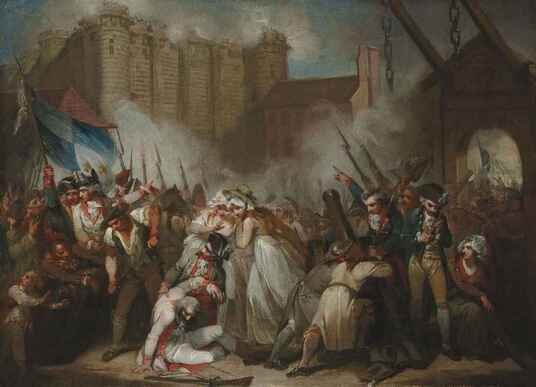
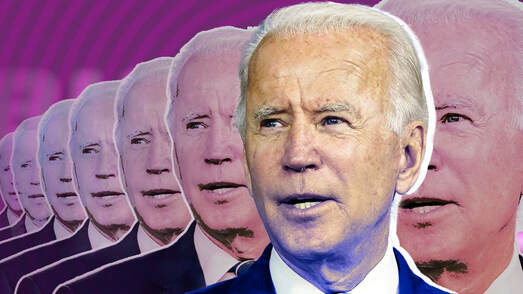
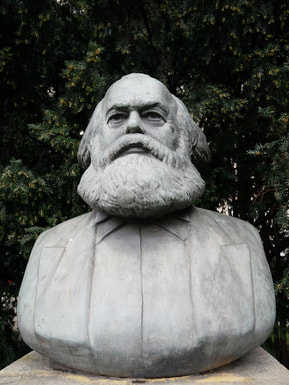
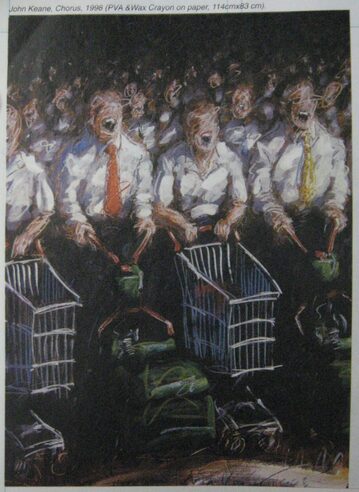



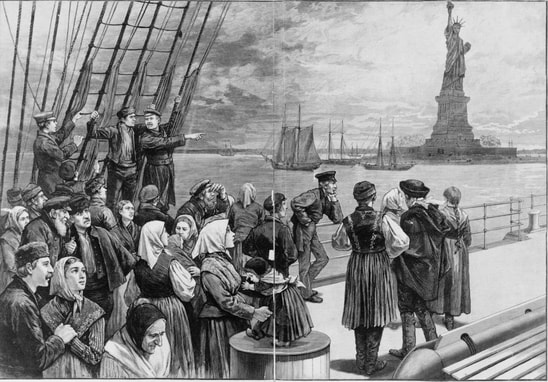
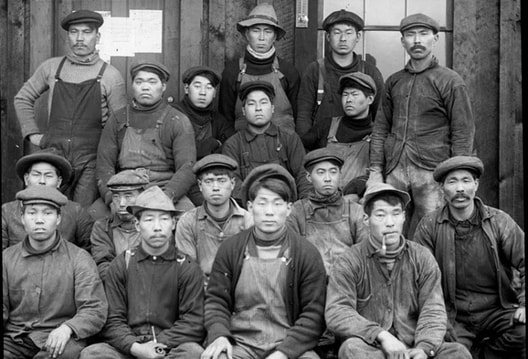
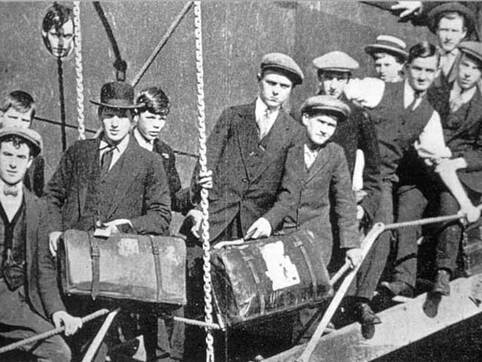

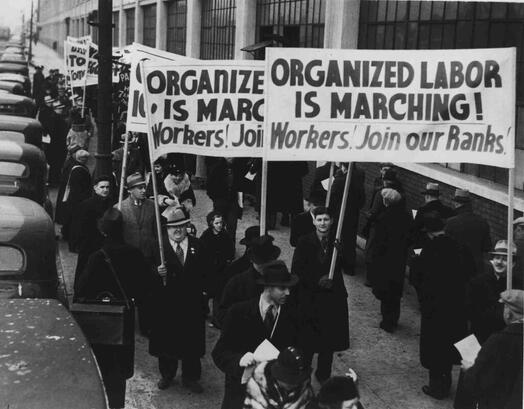
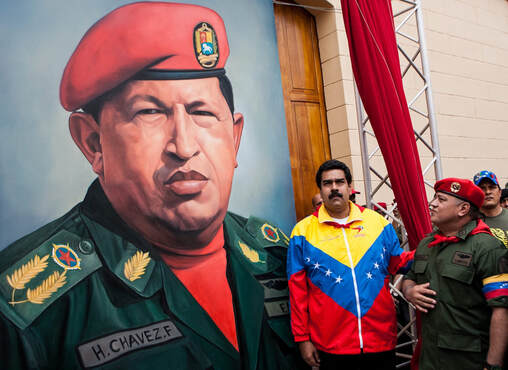
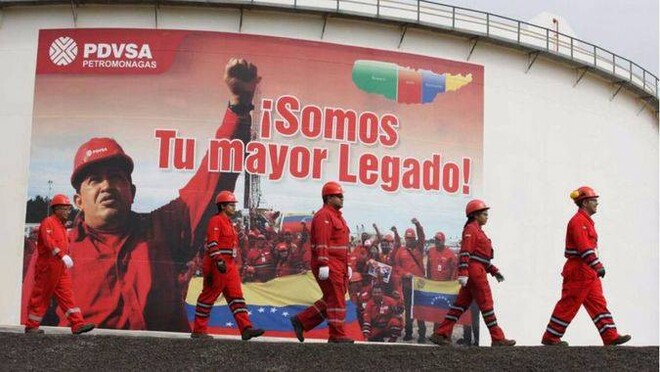
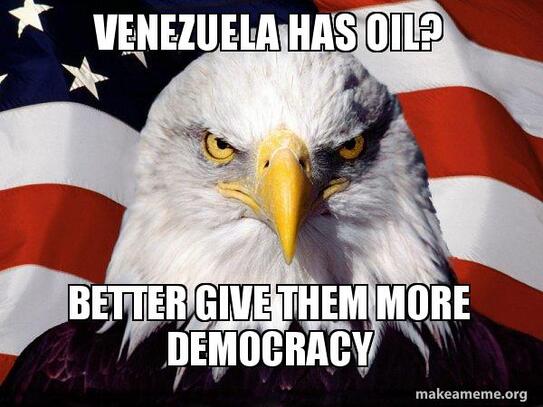
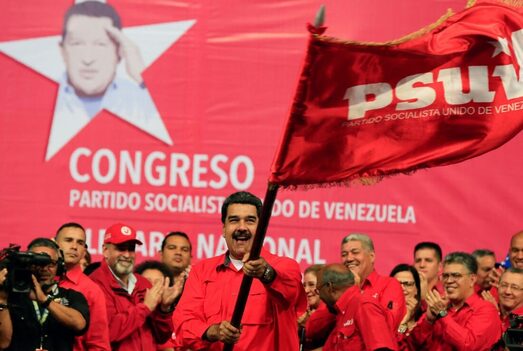
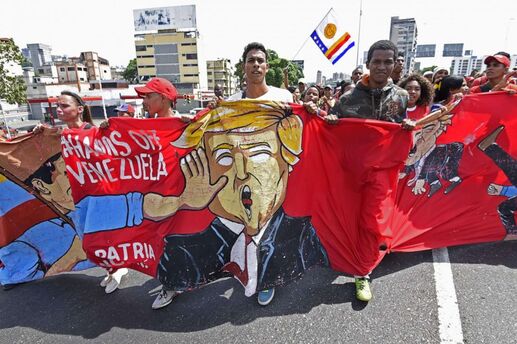

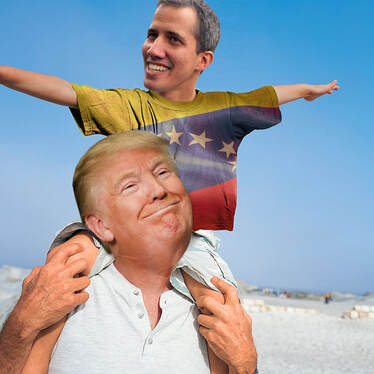
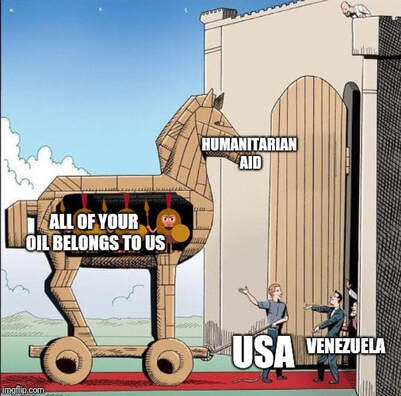
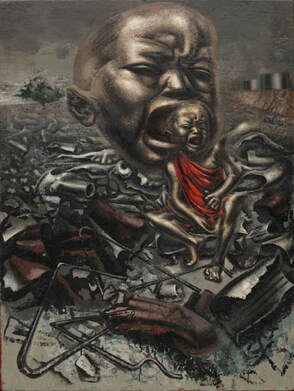
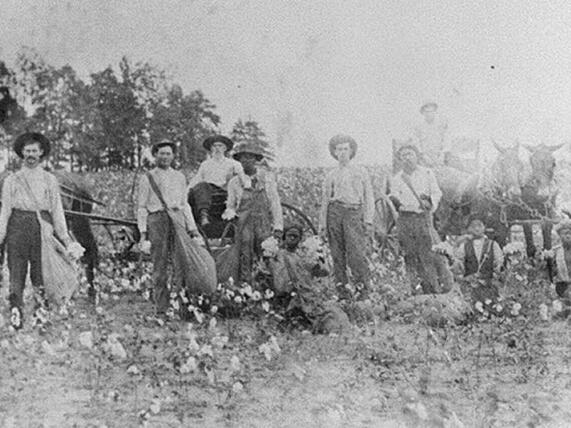
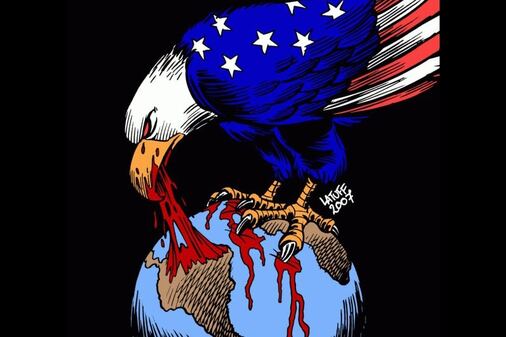
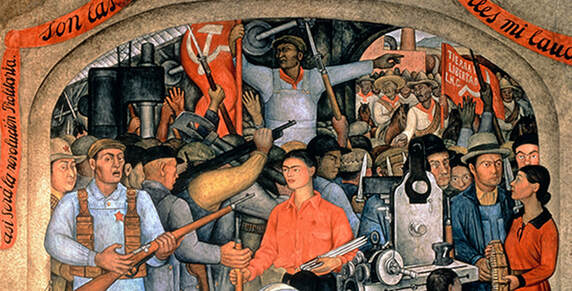
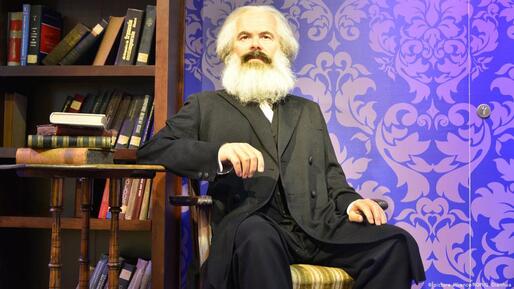
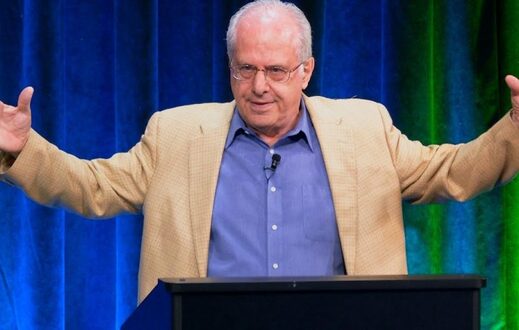
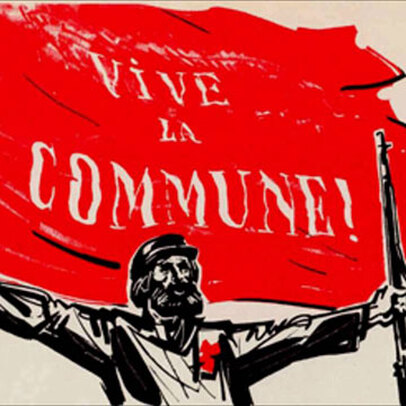
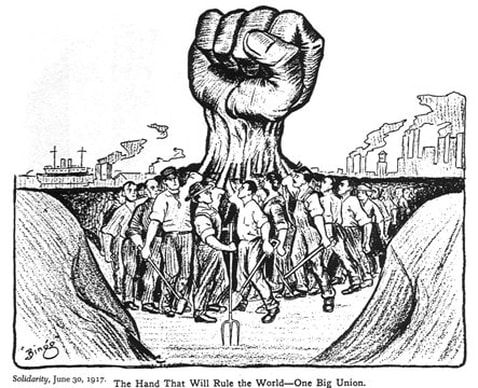
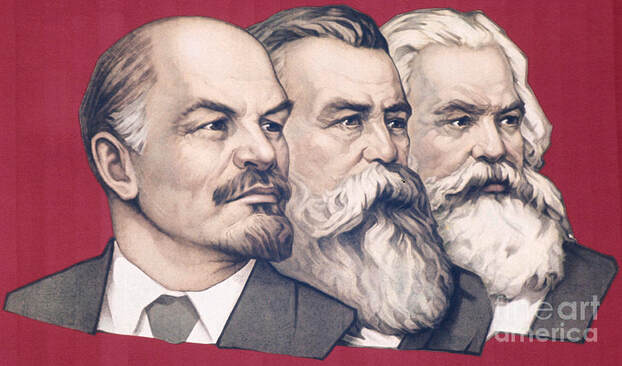
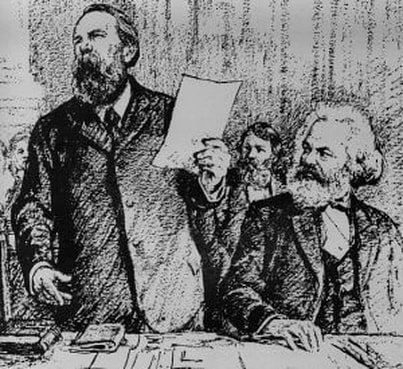

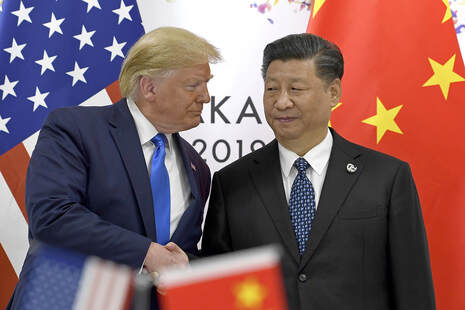
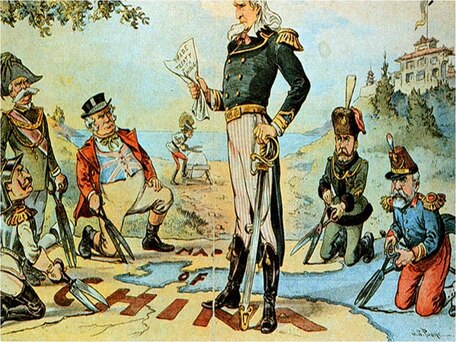
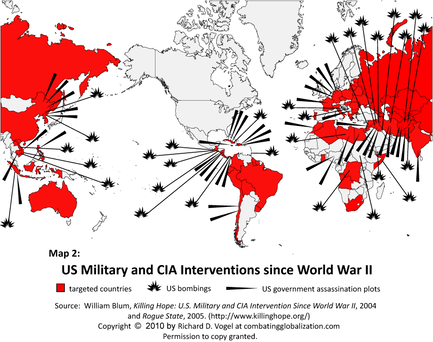

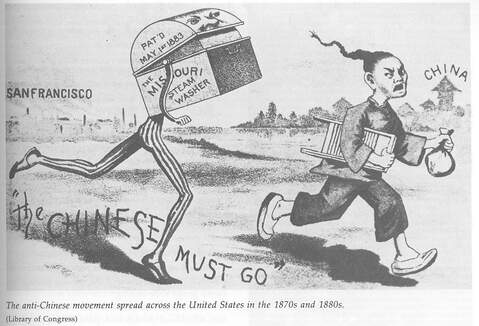
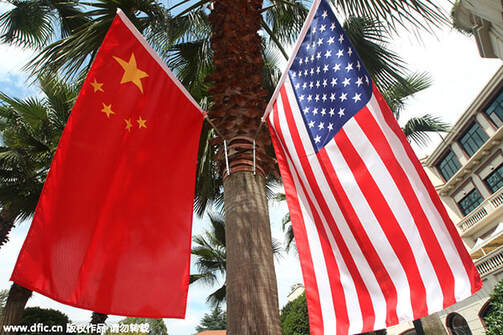

 RSS Feed
RSS Feed